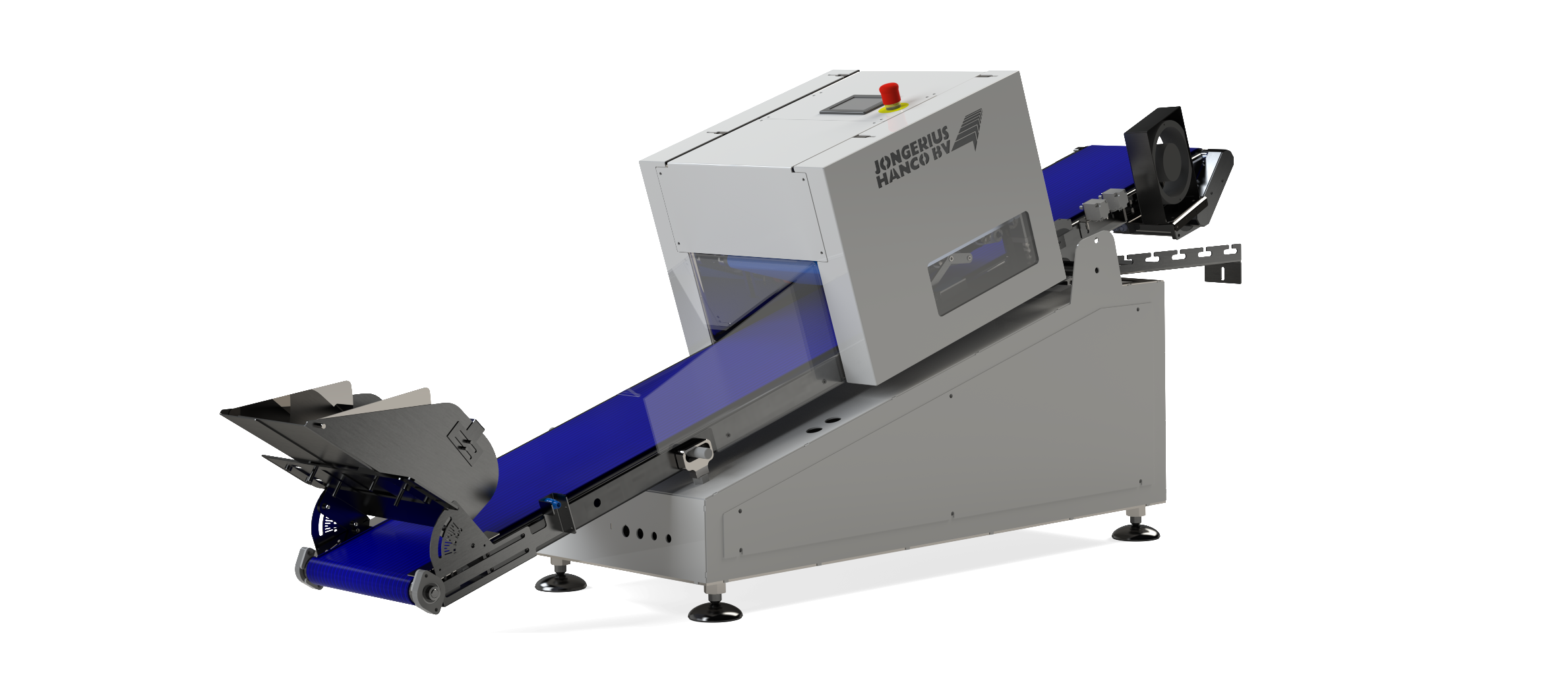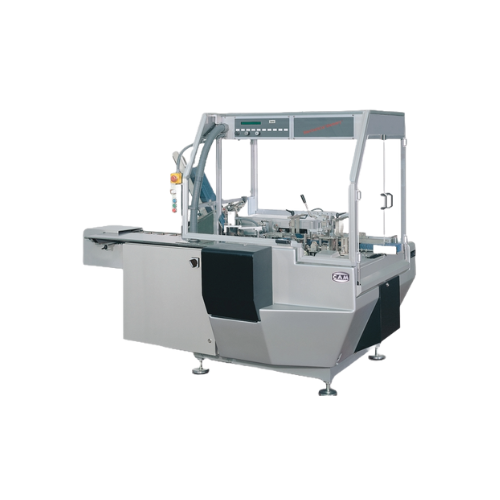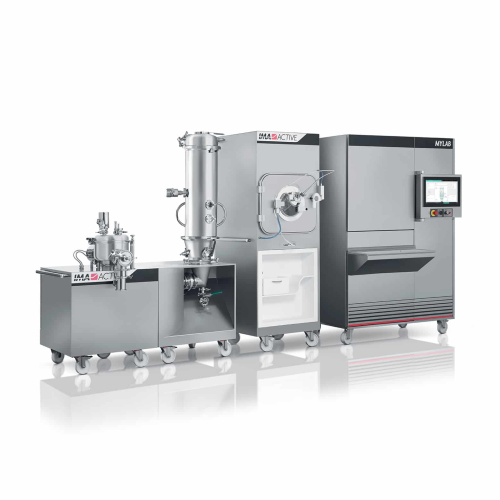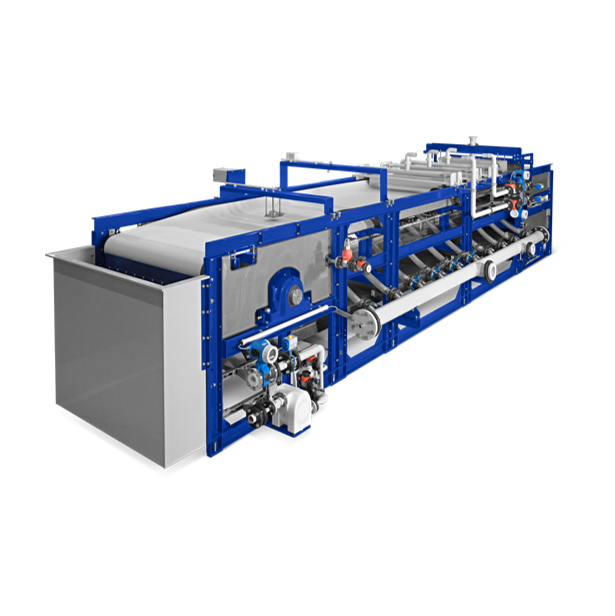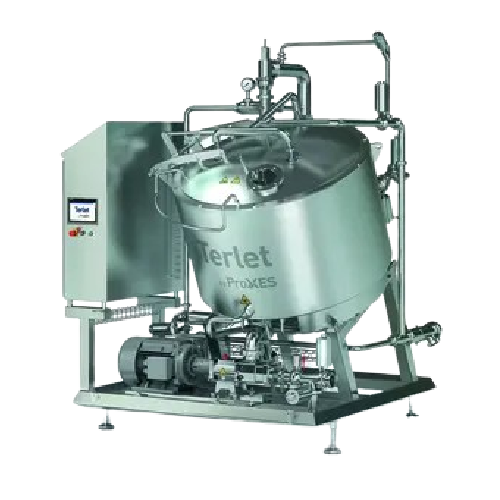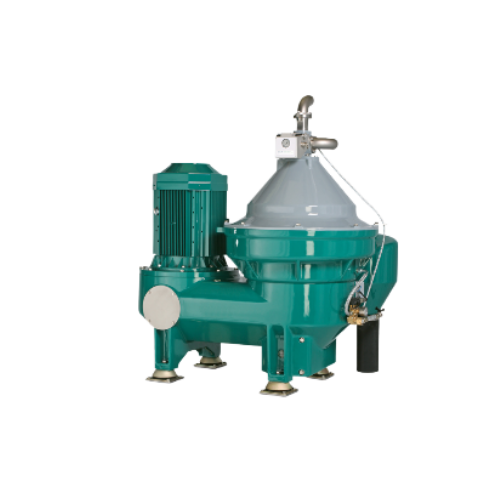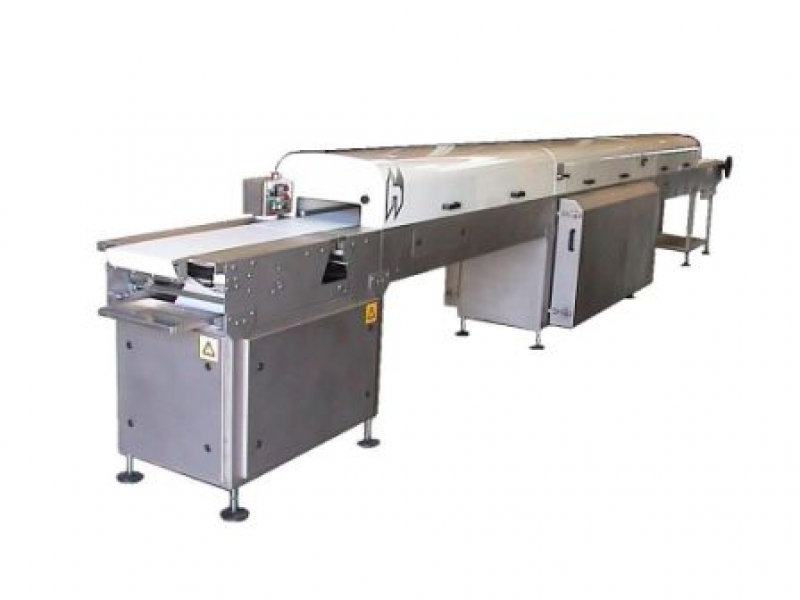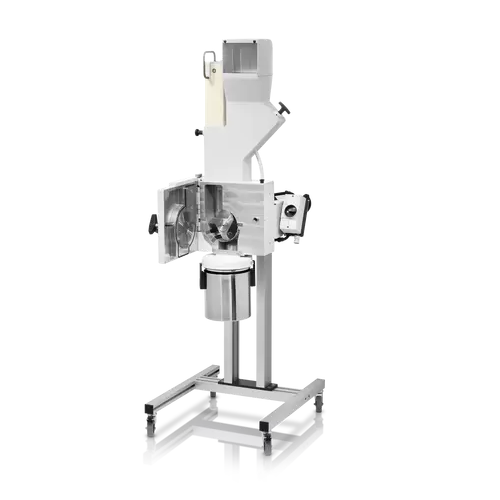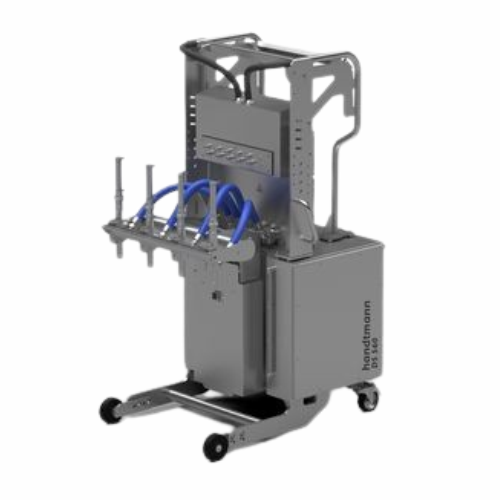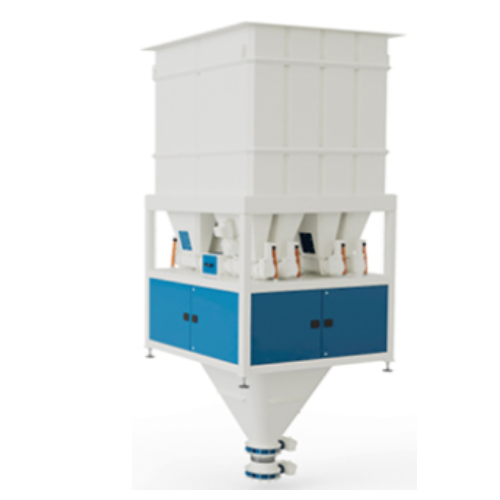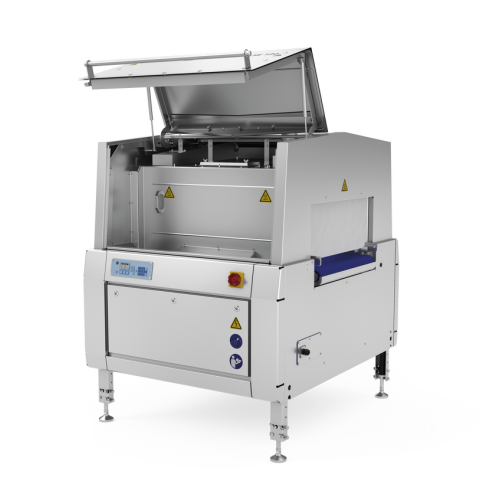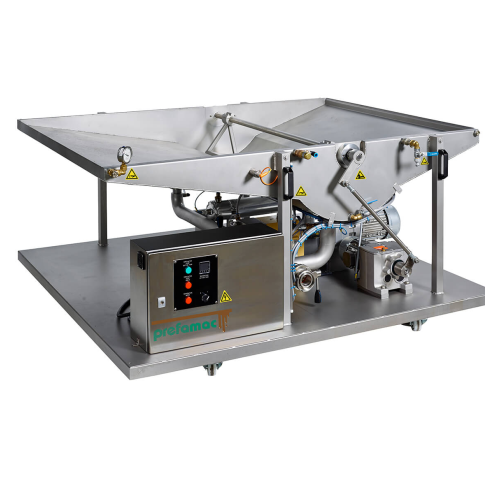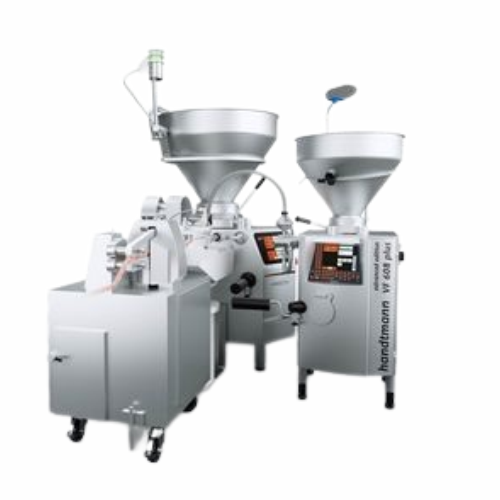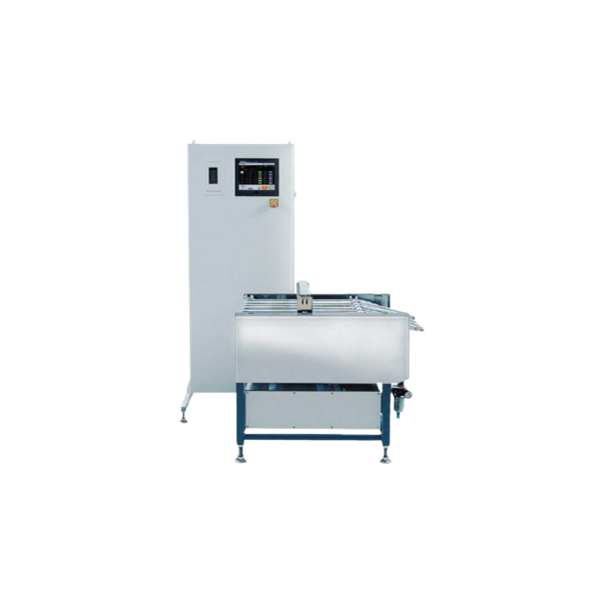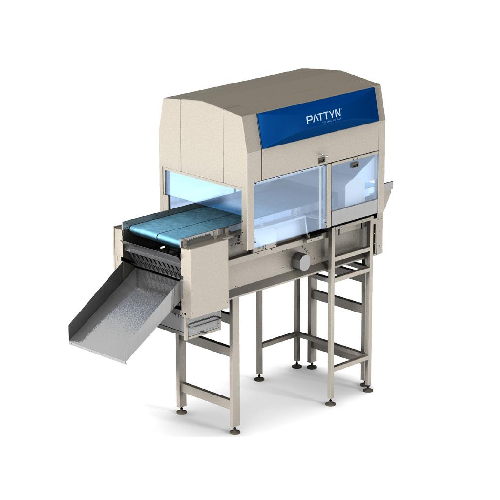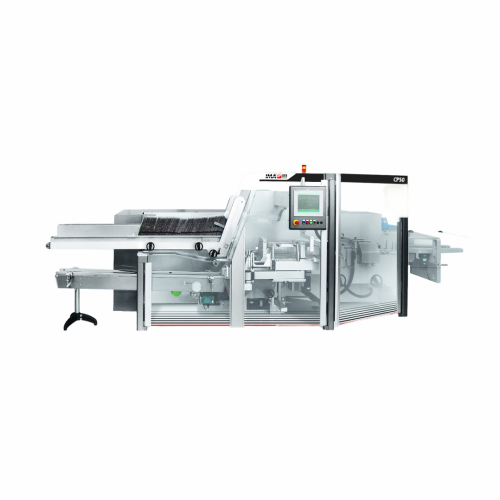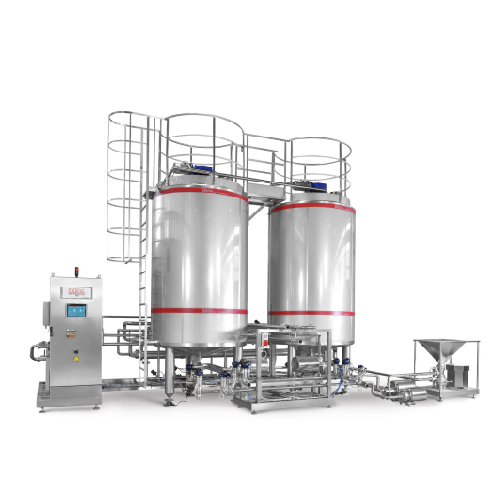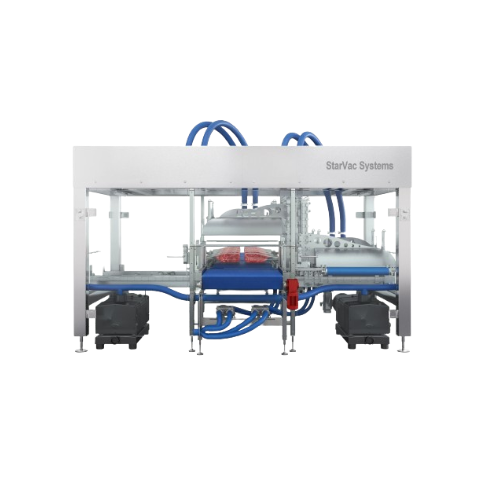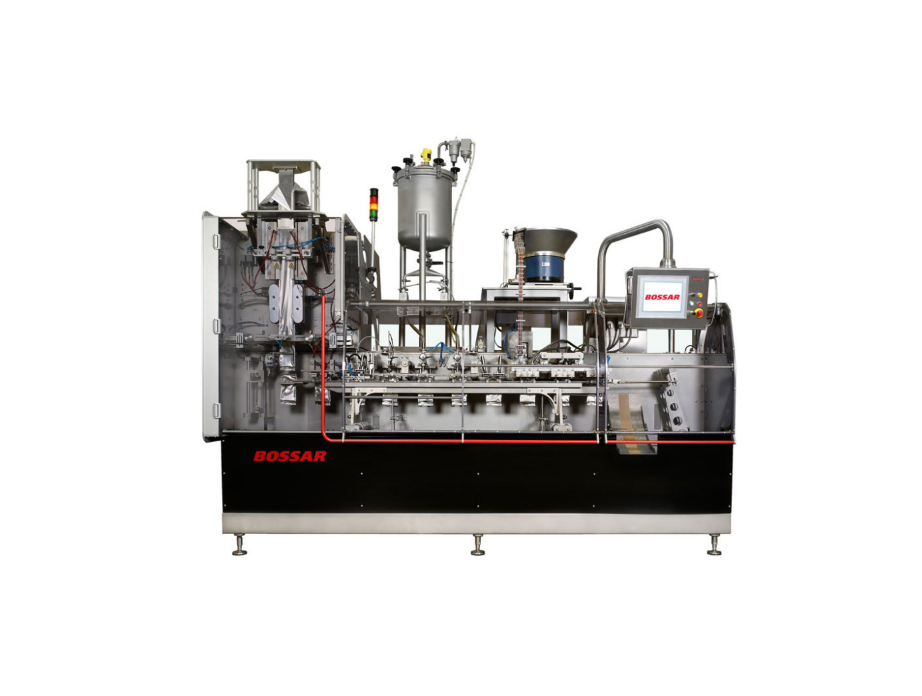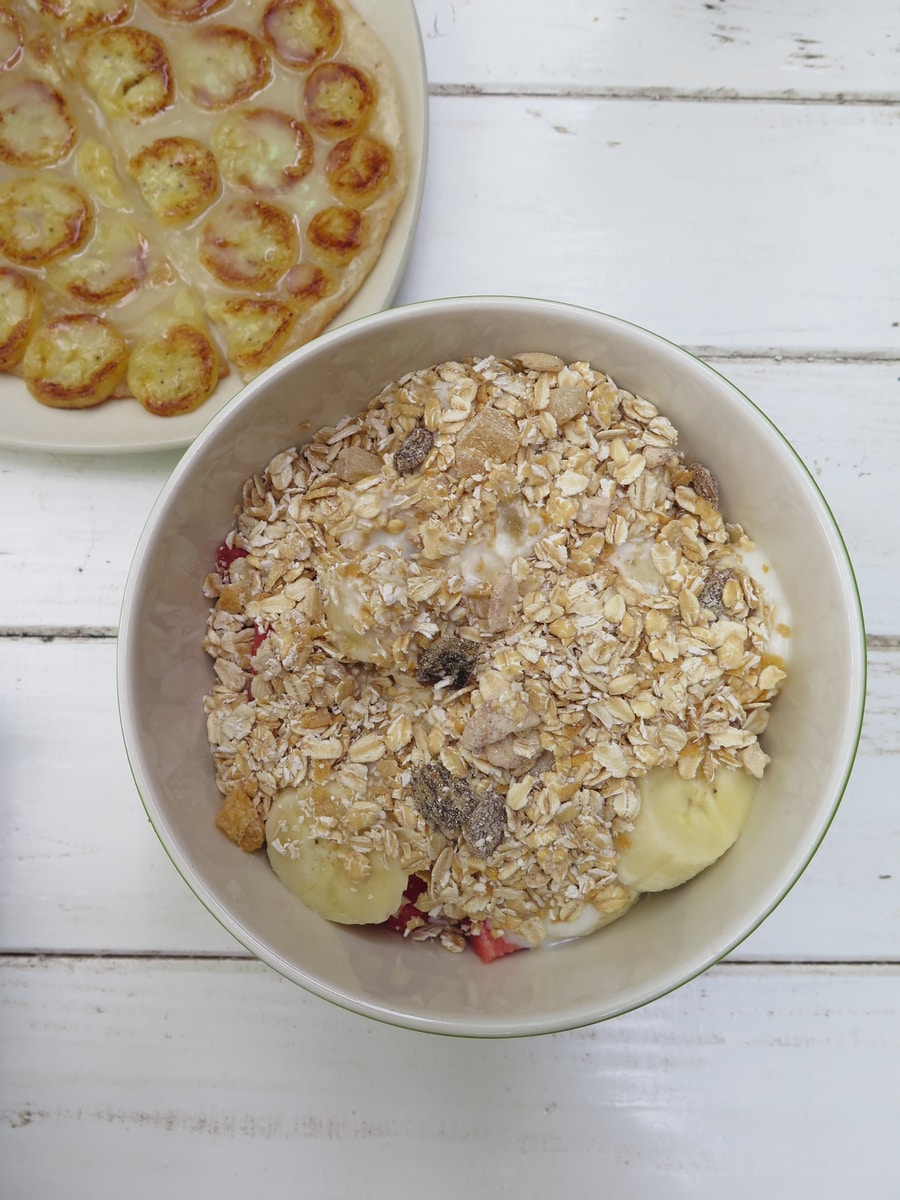
Making Muesli
Find innovative production technology for making muesli and connect directly with world-leading specialists
Muesli, known as the adults’ cereal, is a loose mixture of rolled oats, whole grains, seeds, nuts, and dried fruits. Unlike granola, the muesli manufacturing process goes through rather simple steps. All of the ingredients are combined in the mixer without any specific cooking or baking process. This loose mixture is then packed individually, either in stand-up pouches, paper bags, paper tube and so on.
Tell us about your production challenge
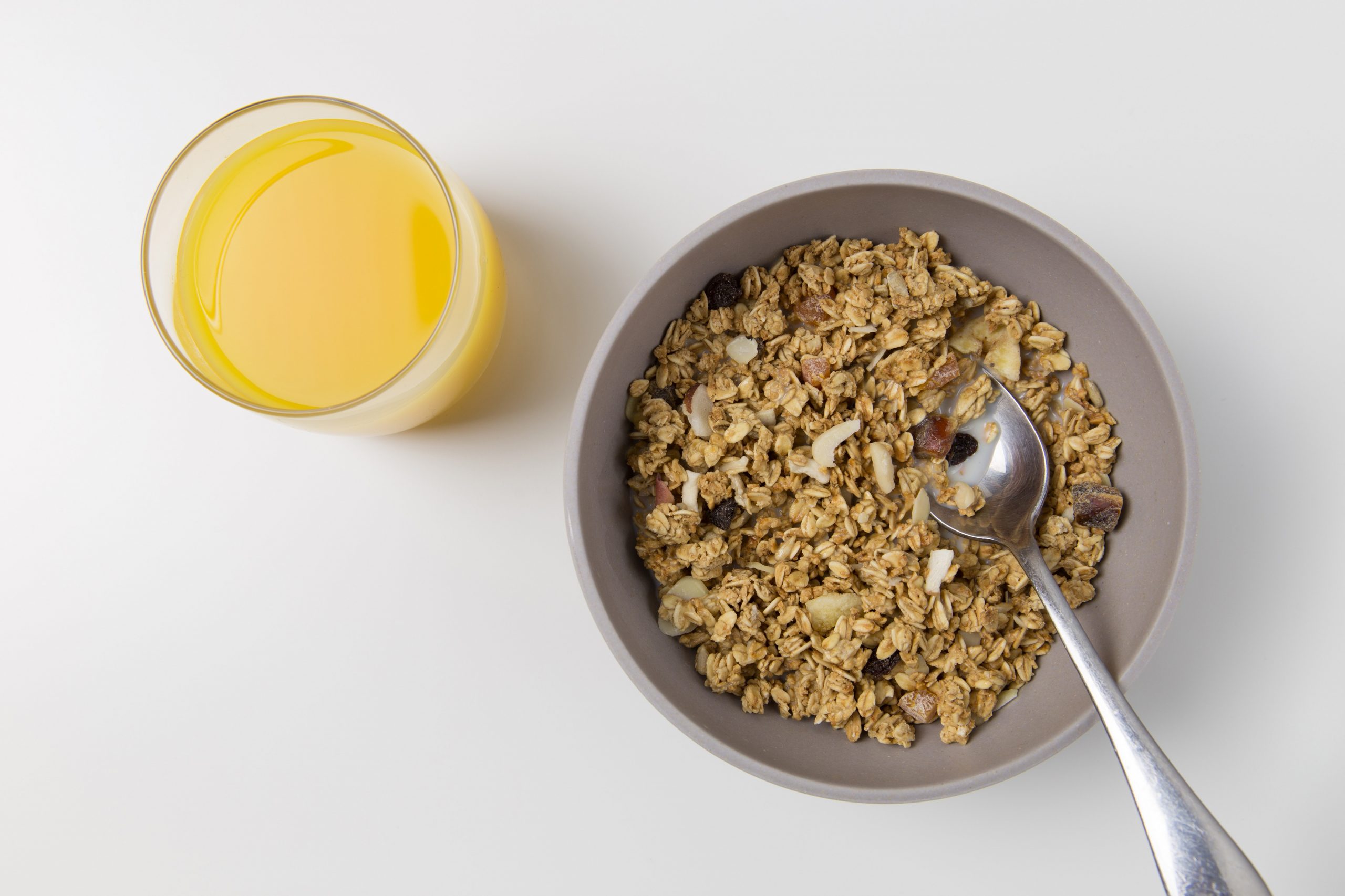
The muesli manufacturing process - it’s all about choosing and mixing!
First, you need to find ingredients you would like to add to the combination of the loose mix; most often they are whole grain, oats, seeds, nuts, and dried fruits. Before mixing, ingredients such as oats and barley have to go through hulling process to separate the wheat from the chaff. The cereal also has to be cleaned based on weight – straw and chaff are lighter than cereal. A day before flattening, this cleaned cereal is soaked in water. Then, this soaked cereal goes into a bed with infrared burners – as known as a micronizer system – for 600 to 900°C for 10-15 seconds, so the cereal becomes softer for the flattening process. Then, you flatten the cereal with a strong roller and cooled it down to dry the extra moisture.
Then, combine all of these ingredients in the mixer. Without adding any oil or sweetener such as sugar and syrup, the batch goes through the mixing process. Usually, you need gentle mixing equipment for muesli that can preserve the shape and texture of the ingredients, and you have to mix them for a short period of time – from 10 to 30 seconds.
After the mixing, the loosely combined ingredients are transferred to a packaging machine, which packs the muesli in either paper bags or stand-up pouches. This process pertains to making plain muesli. However, muesli is often also combined with dried fruits such as apricots and coconut flakes. And, with nuts such as almonds and walnuts to give extra flavor. Muesli is a snack enjoyed on its own or mixed with yoghurt and fresh fruits.
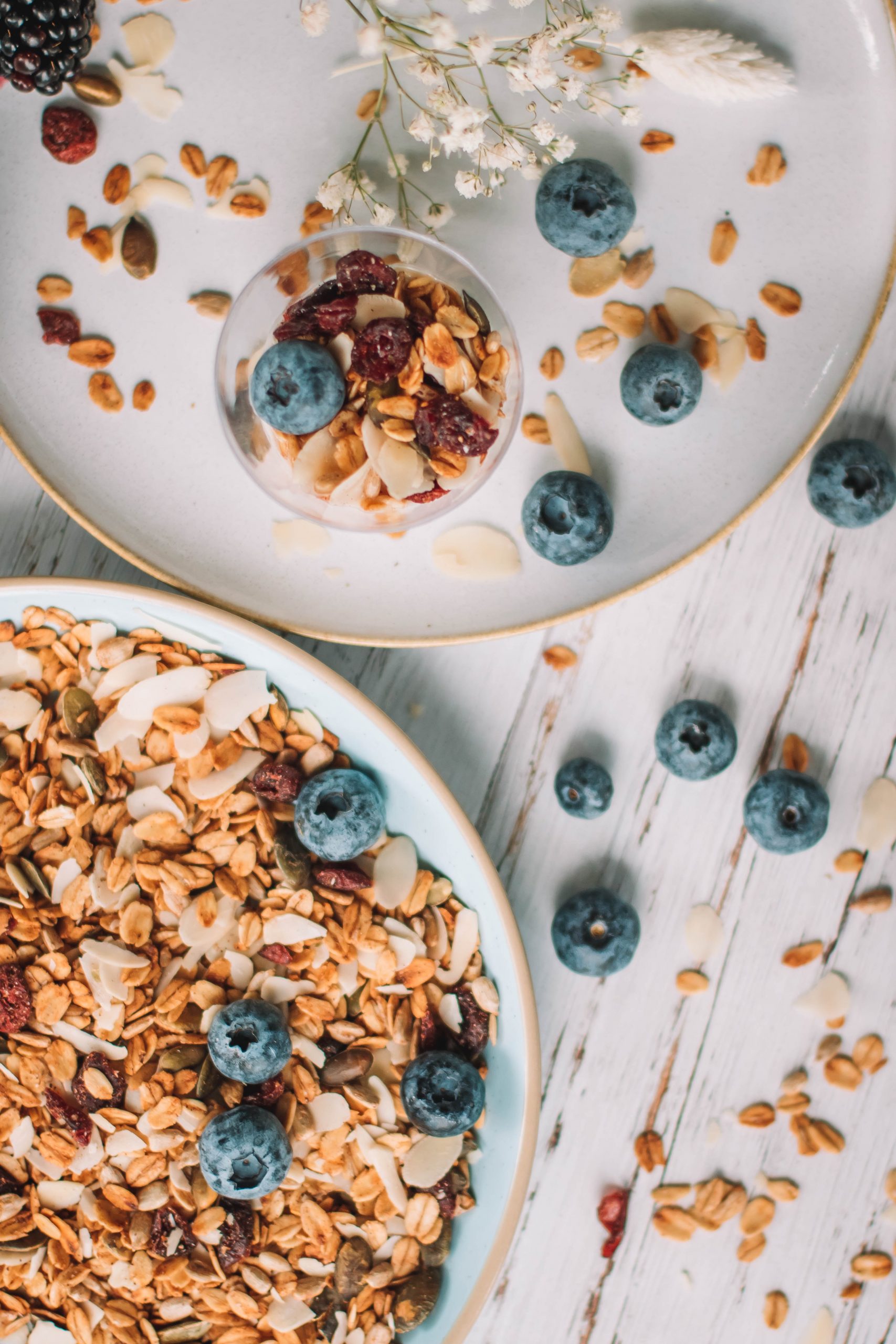
Muesli vs. granola - baking or no baking?
To bake or not to bake, that is the question! The difference between muesli and granola lies in the production process of these two products. Simply put, muesli is a mix of rolled oats, whole grains, nuts, seeds, and dried fruits that is not cooked or baked, but in a natural form. On the other hand, granola is a mix of the similar ingredients as muesli, but oil and sugar are added to the baking process as these two additional ingredients allow the mixed batch to stick together better.
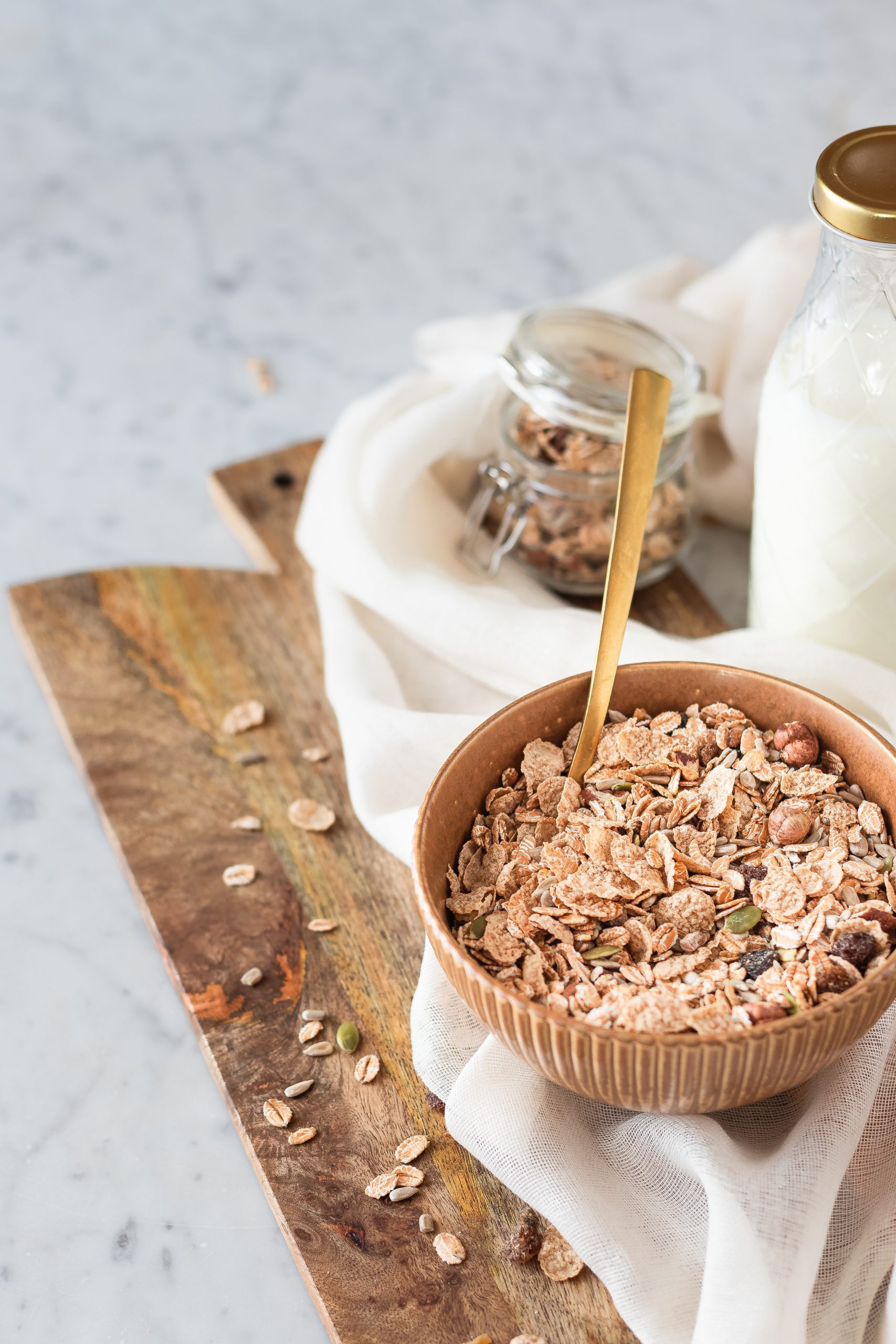
What is the best packaging for muesli?
Among three common packaging options of muesli – paper bag, paper tube, or Doypack (stand-up pouches) – it is proven that the Doypack is the best choice. According to a research, the moisture content and water activity of muesli in these three containers were varied after 9 months, showing Doypack with the highest percentage for both criteria. This demonstrates that the muesli packed in Doypack was dried out the least after a certain period. Also, evaluation of other criteria such as sensory evaluation microbiological parameters showed that Doypack was the best packaging solution for muesli.
Processing steps involved in muesli making
Which muesli technology do you need?
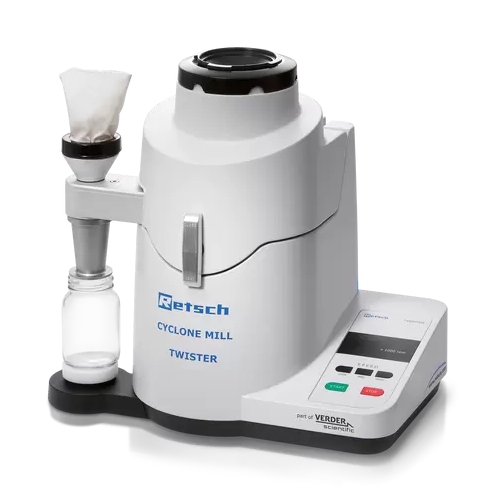
Cyclone mill for Nir analysis sample preparation
Ensure accurate NIR analysis by optimally preparing samples with efficien...
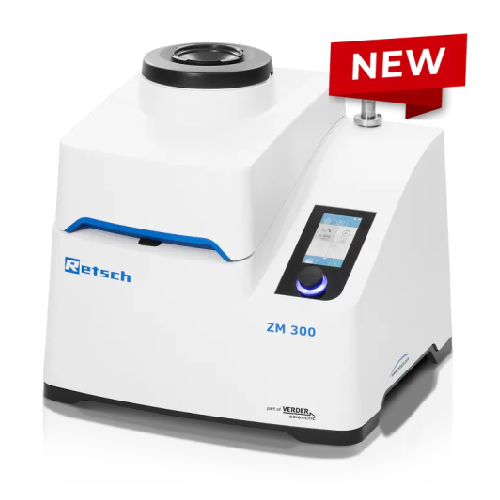
Ultra centrifugal mill for size reduction of soft and medium-hard materials
Achieve precise particle size reduction an...
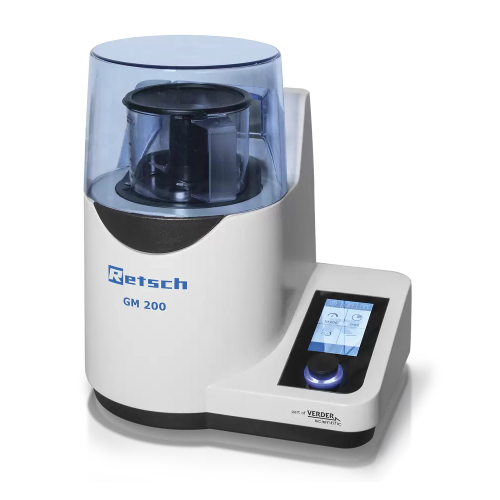
Knife mill for food and feed sample grinding and homogenization
Achieve consistent texture and precise size reduction of...
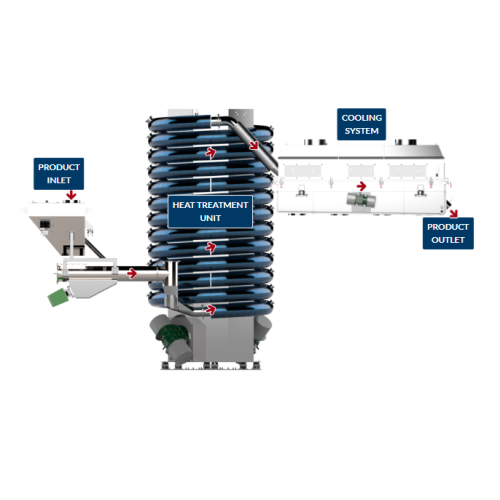
Industrial continuous heat treatment for dry ingredients
Optimize your production line with a continuous system that ensu...
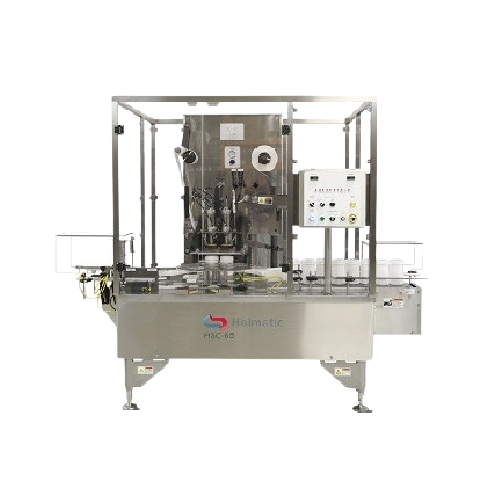
Rotary indexing sealer for cup filling
Streamline your production line with precise cup filling and sealing, ideal for a wi...
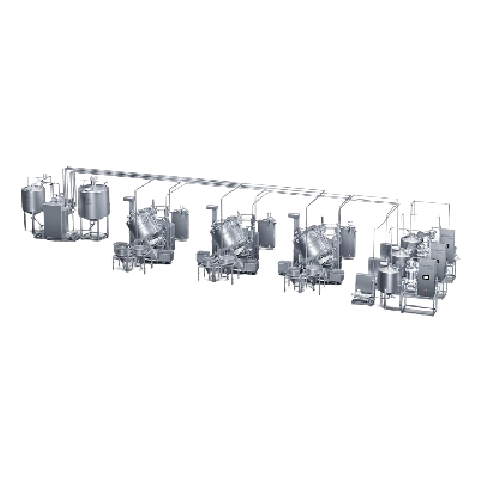
Continuous mustard production line
Optimize your condiment production with precision-engineered systems capable of transfor...
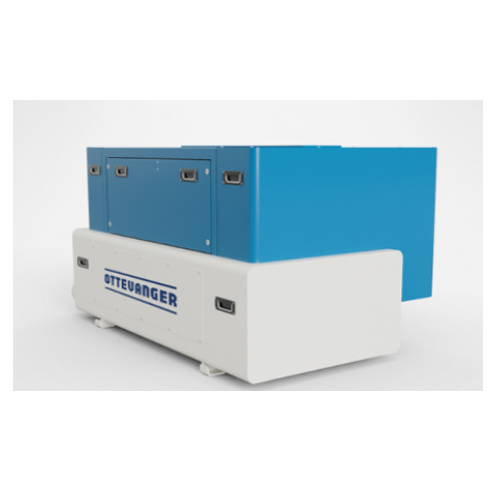
Grain flow regulator for roller mills
Achieve consistent grain distribution and safeguard your roller mills from wear and c...
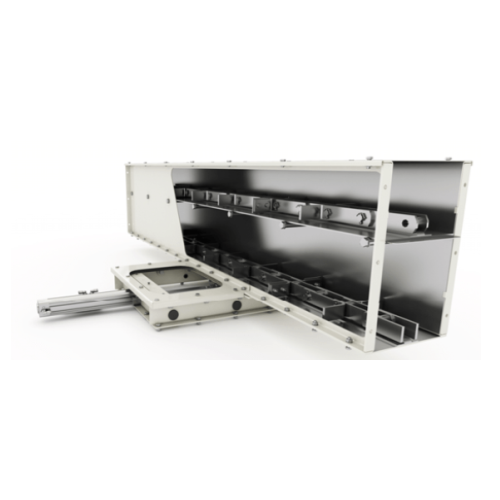
Chain conveyors for long-distance bulk material transport
Efficiently transport challenging bulk materials across long d...
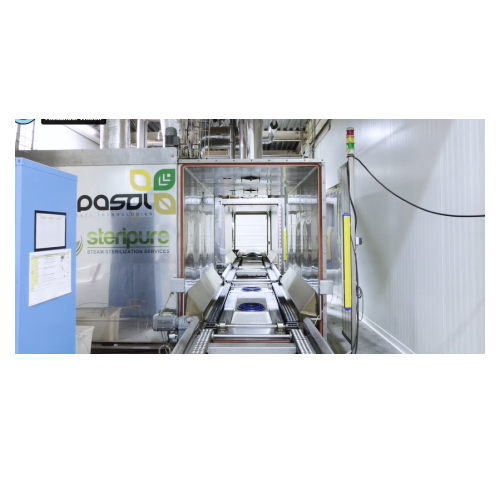
Roasting and pasteurization system for nuts and seeds
Ensure optimal pasteurization and roasting of nuts, seeds, and drie...
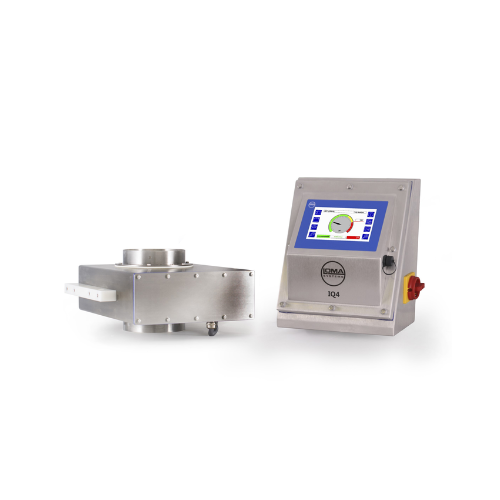
Gravity fed metal detector for dried foods
Ensure product purity and safety with metal detection between gravity feed hopp...
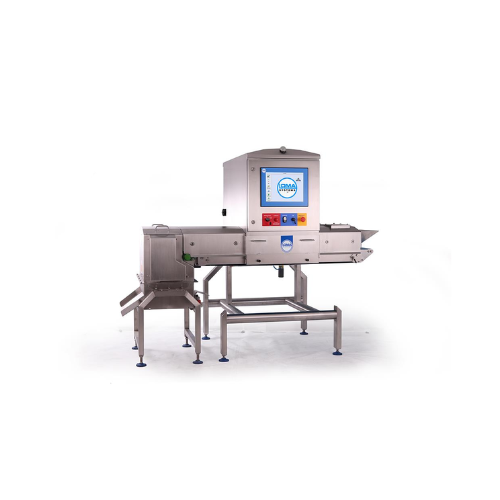
X-ray food inspection system for loose products
Ensure contaminant-free loose products by integrating a versatile inspecti...
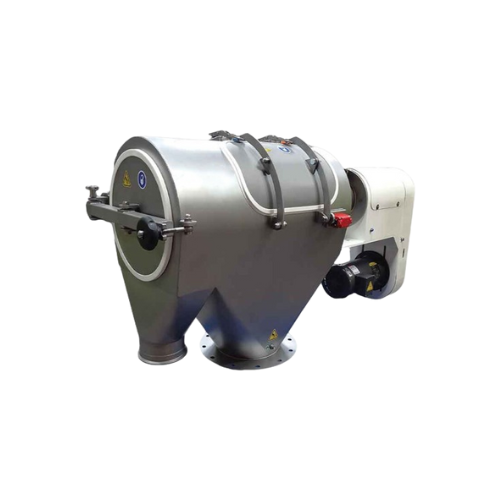
High-speed centrifugal sifter for food and pharma applications
Optimize your powder processing with a high-speed centrif...
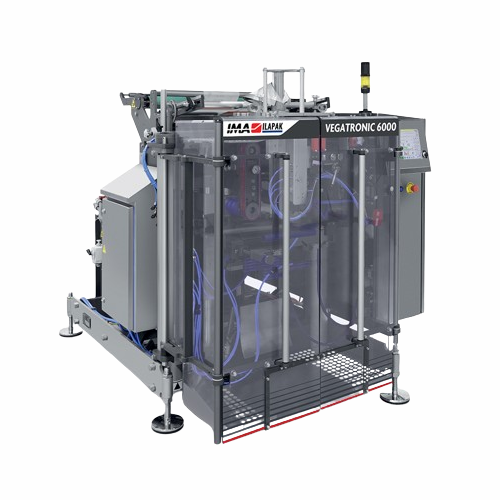
Continuous vertical form fill seal packaging solution
Experience unrivaled accessibility and efficiency in packaging fres...
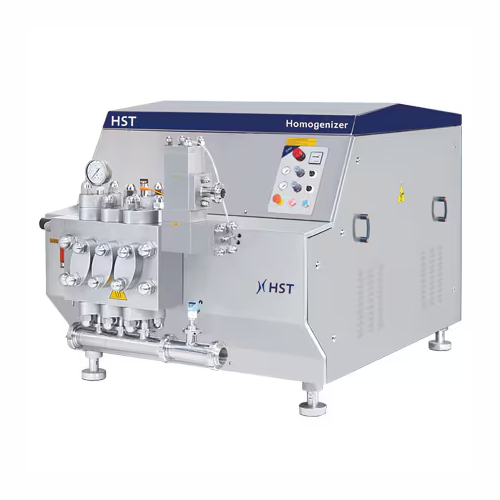
High-pressure homogenizers for dairy and beverage industries
Achieve precise emulsion stability and consistent particle ...
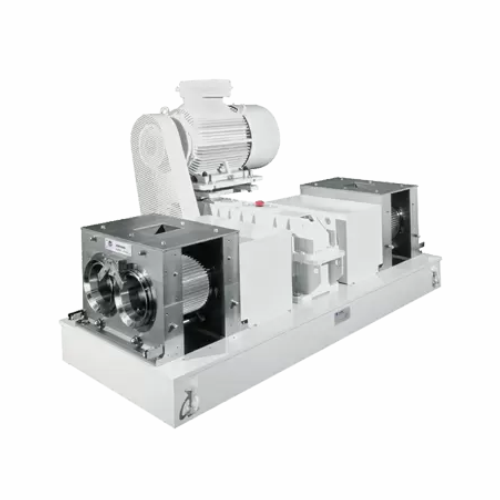
Compactors and granulators for powdery products
Transform loose powders into dense, free-flowing granules that enhance han...
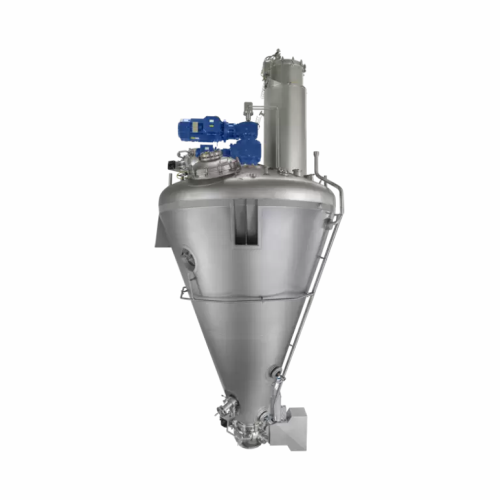
Vacuum dryer for powders and granules
Achieve precise moisture control for sensitive materials with a versatile vacuum dryi...
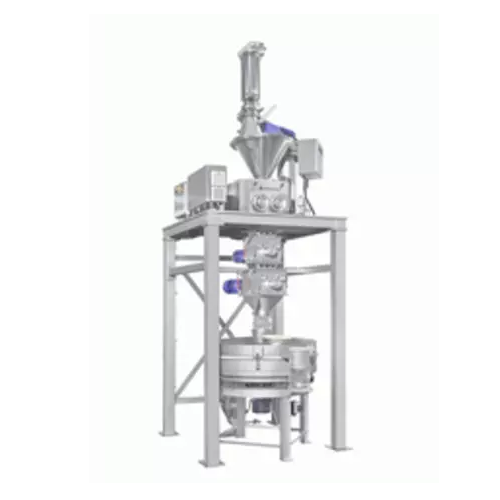
Roller press for fine-grained material compaction
Achieve optimal density and stability in your solid press agglomerates ...
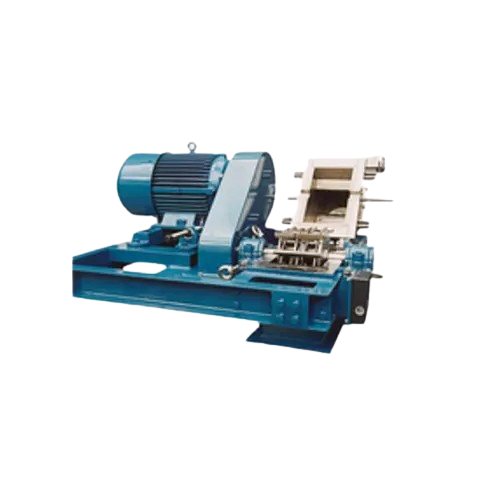
High-speed hammer mill for continuous operation
Achieve precise particle size reduction with high-speed hammer milling, id...
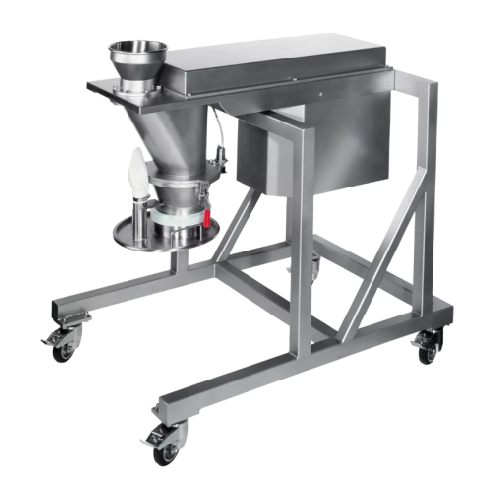
Flake crushers for gentle crushing of brittle materials
For processes needing precise granule control, our equipment ensu...
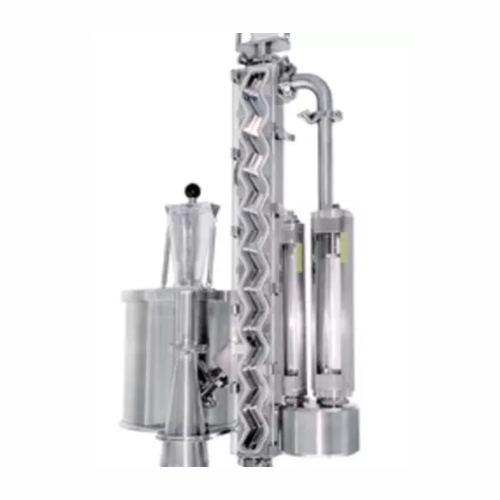
Gravity classifier for precise particle separation
Achieve sharp separations in particle processing with minimal maintena...
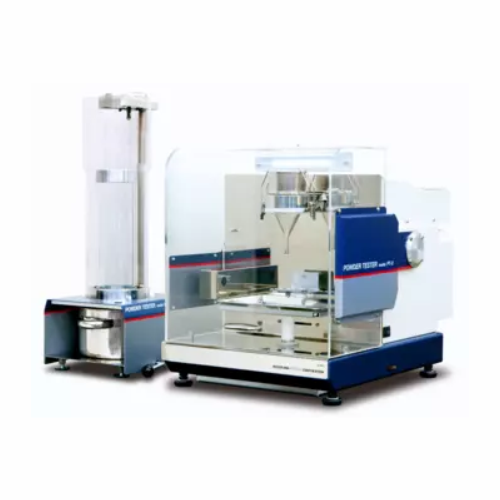
Powder flowability and compressibility analysis
Ensure accurate powder flowability and compressibility data with this adva...
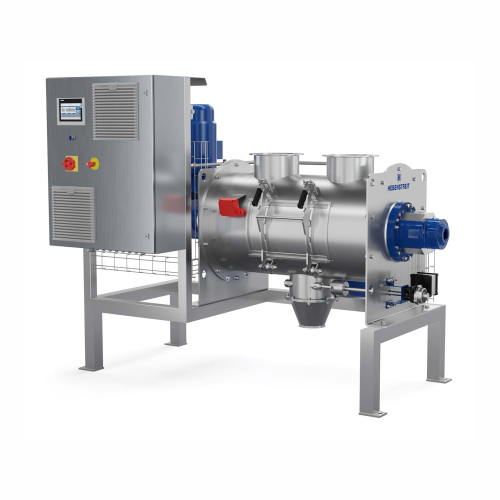
Industrial raw material mixer for complex recipes
Struggling with complex raw material mixtures? This advanced mixing sol...
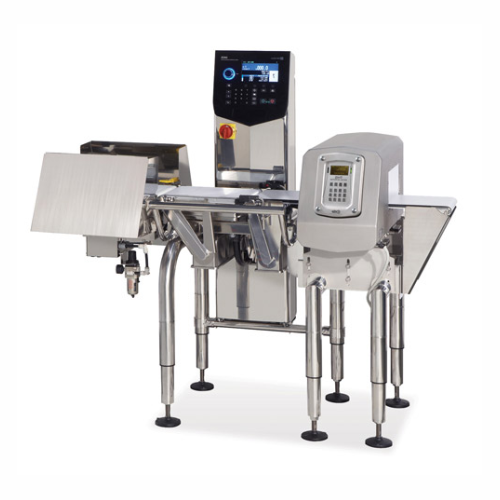
Metal detection and weight verification system
Optimize space and boost inspection accuracy by combining metal detection a...
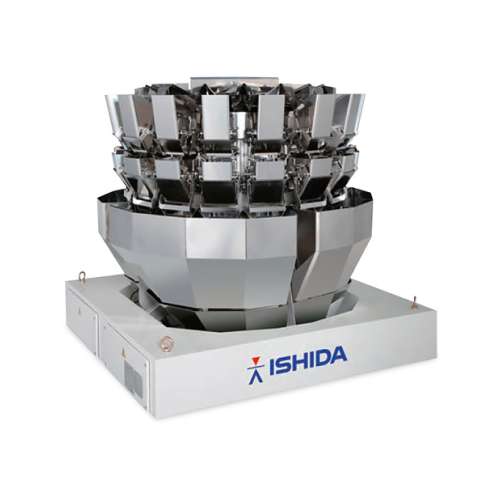
Blending multihead weigher for accurate component mixing
Achieve precise blending in high-speed operations with individua...
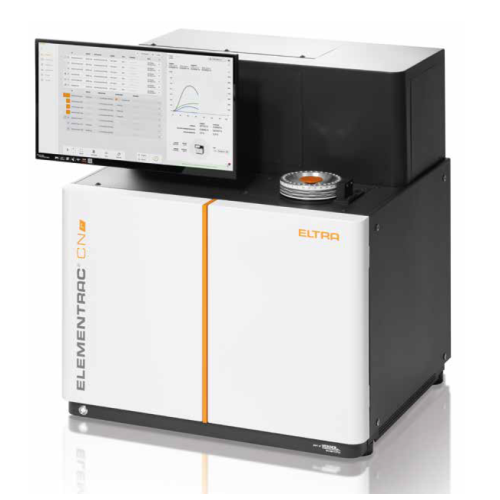
Carbon/nitrogen analyzer for organic samples
Optimize your lab’s efficiency with fast, reliable nitrogen and carbon ...
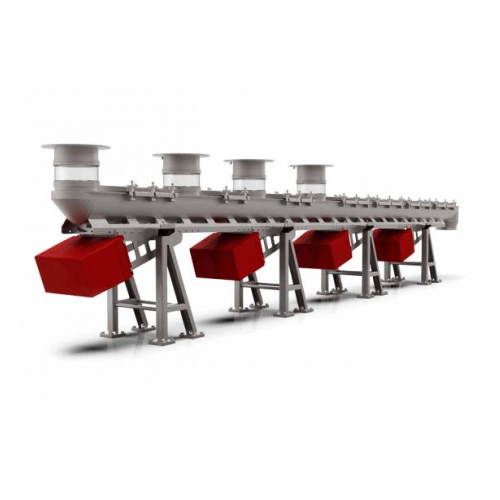
Vibration transport system for hygienic conveying of bulk goods
Optimize your production line with efficient and hygieni...
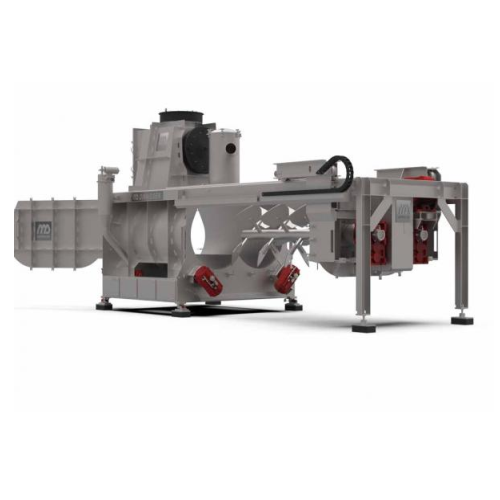
Industrial mixer for batch granules or grains
Achieve precise mixing with seamless integration of heating, sterilization, ...
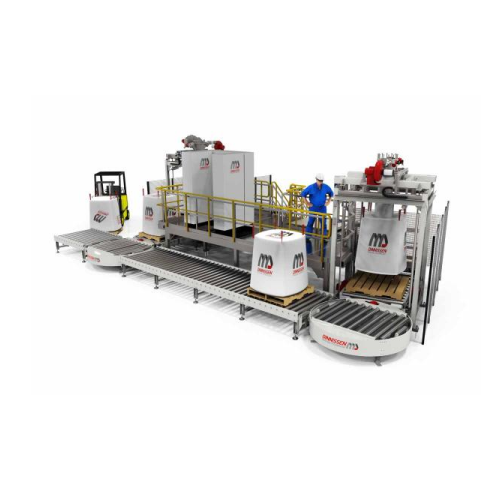
Product handling system for big bags and containers
Optimize your production line with a comprehensive system for transpo...
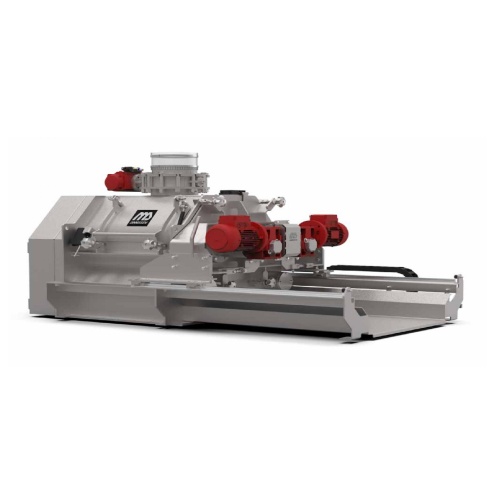
5-in-1 industrial mixer for food and chemical industries
Streamline your production with a multifunctional system that ef...
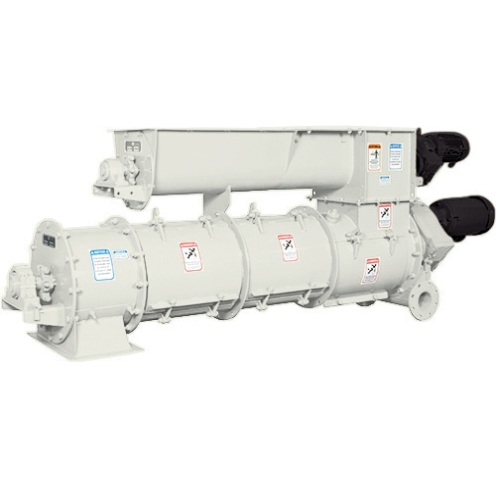
Industrial moisture and temperature control conditioner
Optimizing moisture absorption and temperature management, this c...
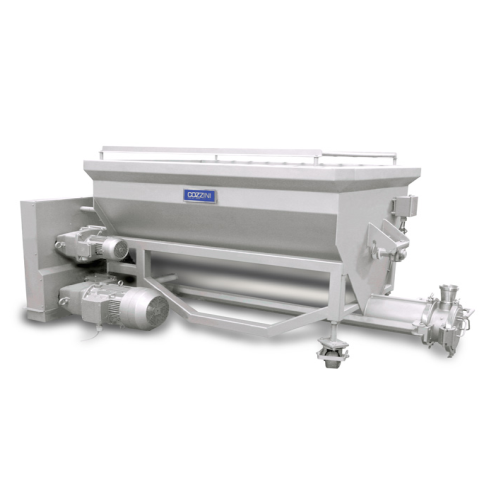
Horizontal screw loader for food processing
Optimize your production flow with a smooth-loading solution designed to effic...
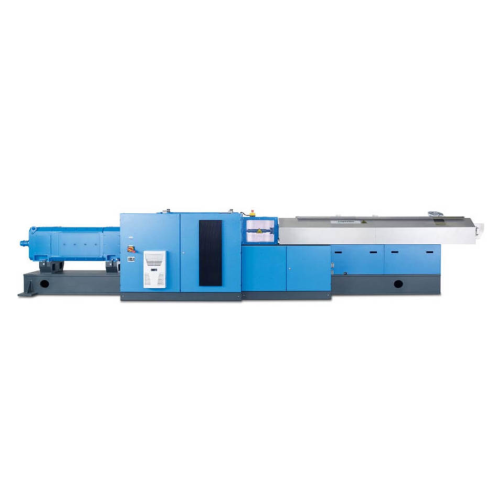
High throughput twin screw extruder for low bulk density products
When handling low bulk density materials, achieving m...
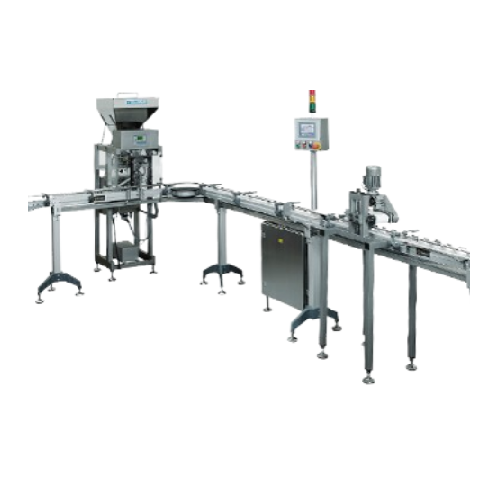
Precision weigh filler for food and pharma industries
Optimize precision in multi-component dosing with seamless integrat...
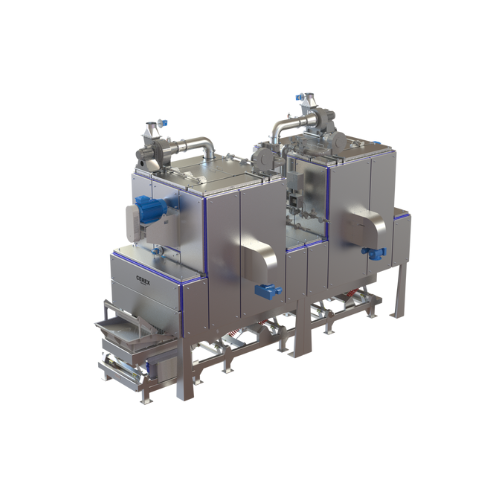
Industrial 2-zone toaster for optimal cereal processing
Achieve precise toasting of cereals and seeds with the 2-zone toa...
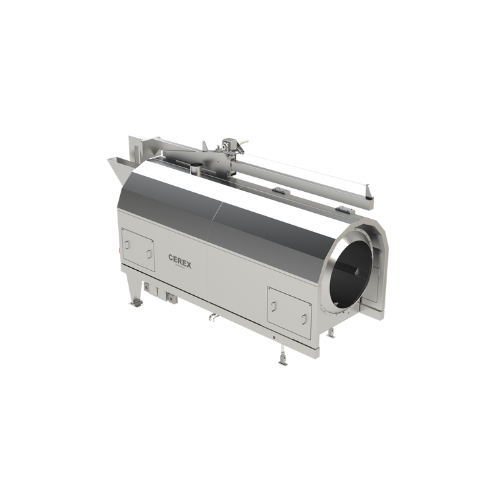
Industrial coating drum for breakfast cereals
Optimize your cereal production with a coating drum designed to enhance prod...
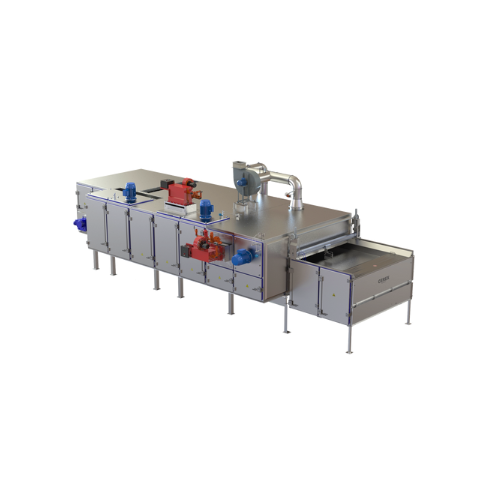
Coating dryers for breakfast cereal production
Achieve precise moisture control in coated cereal production with these mod...
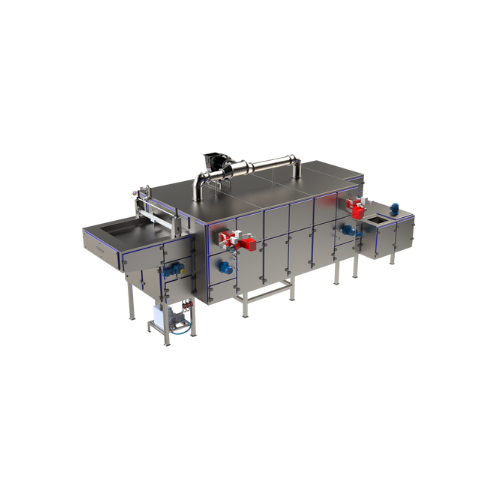
Multi-tier dryers for modern breakfast cereals
Optimize dry and cool cereal, nuts, and seed production with a compact modu...
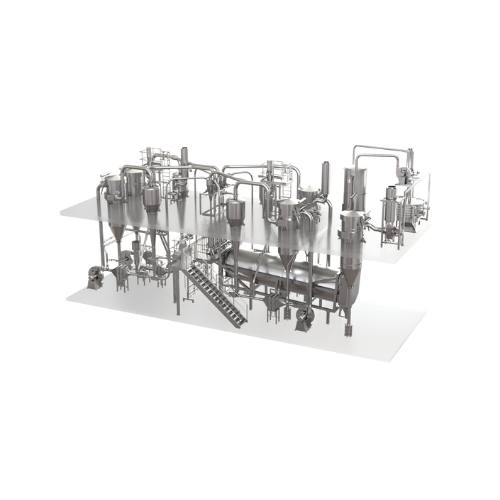
Grain puffing system for breakfast cereals
Achieve precise and efficient grain expansion in breakfast cereals with this ad...
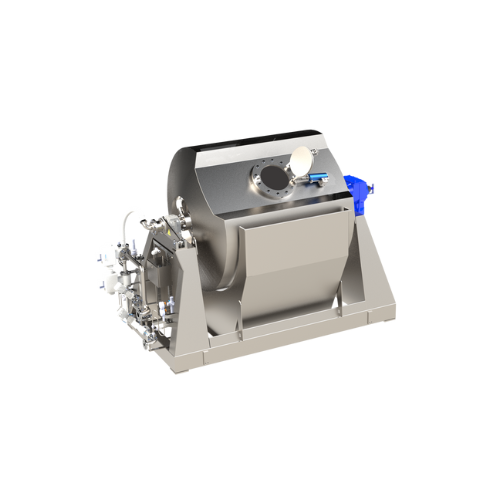
Rotary cooker for uniform steam heating in cereals production
Achieve consistent product quality in high-volume cereal p...
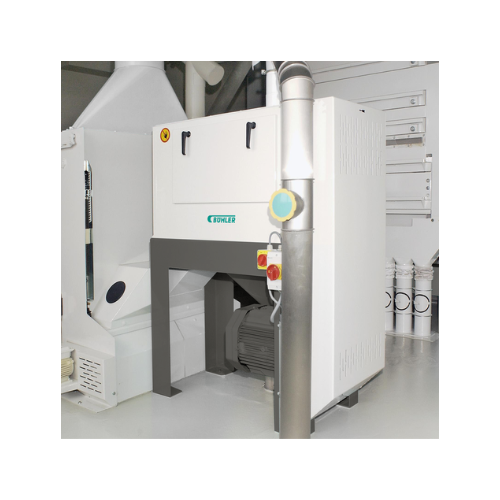
Grain scourer for wheat, durum, and rye
Enhance grain processing by efficiently removing impurities like dust, sand, and so...
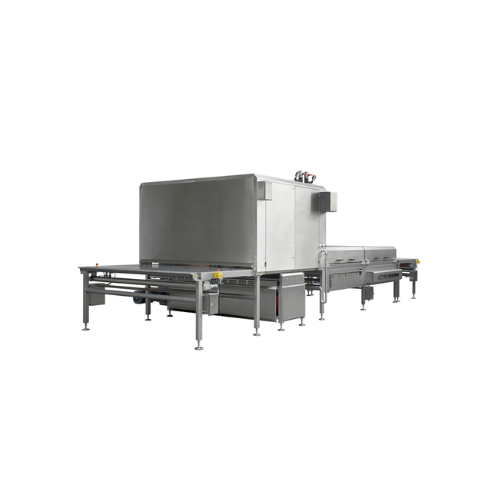
High-efficiency cooling tunnel for confectionery production
Optimize your product cooling process with high-efficiency t...
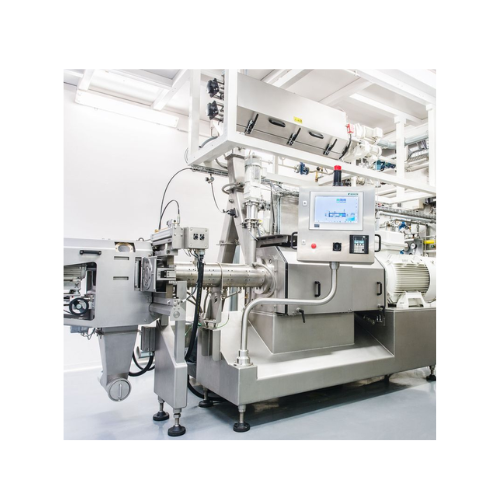
Twin-screw extruder for breakfast cereals production
Enhance your product range with flexible twin-screw extrusion techno...
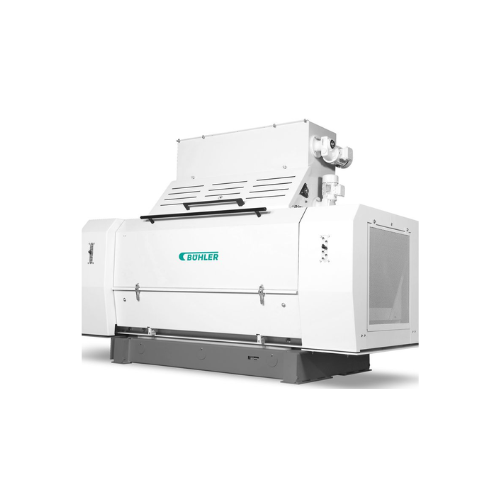
Oilseed flaking and milling system
Optimize your oilseed processing with a flaking system that enhances extraction efficien...
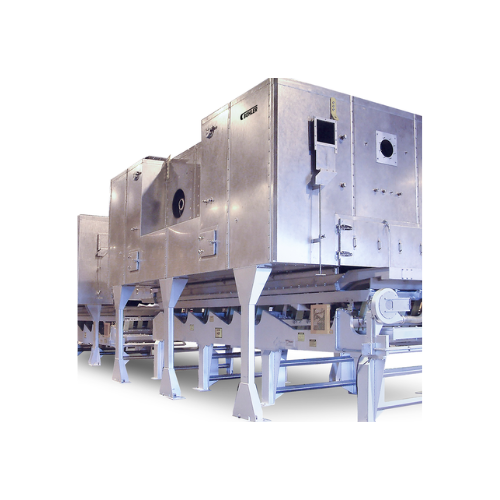
Fluid-bed toaster for cereal processing
Achieve precise control over texture and taste while reducing operating costs with ...
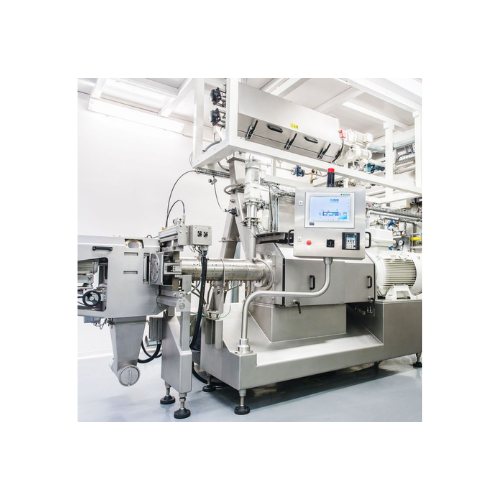
Twin-screw extruder for breakfast cereal
Optimize your production with a robust twin-screw extruder that accommodates high ...
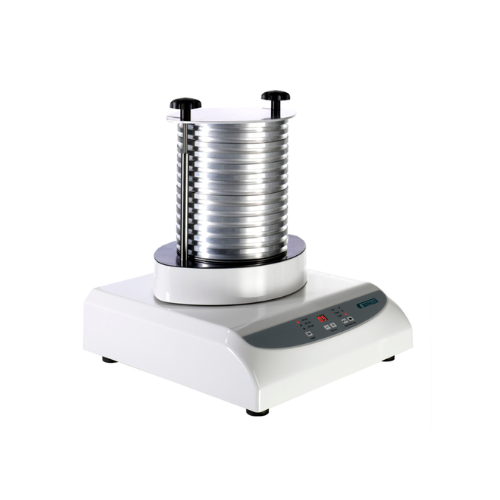
Laboratory plansifter for grain milling and brewing
Achieve precise particle-size distribution and quality control across...
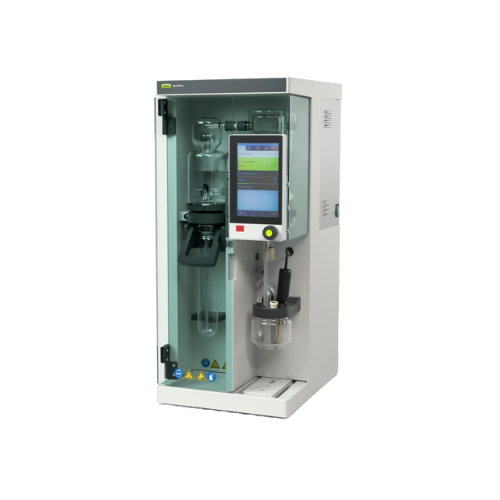
Versatile steam distillation unit for laboratory applications
Achieve reliable analysis of complex samples with this ste...
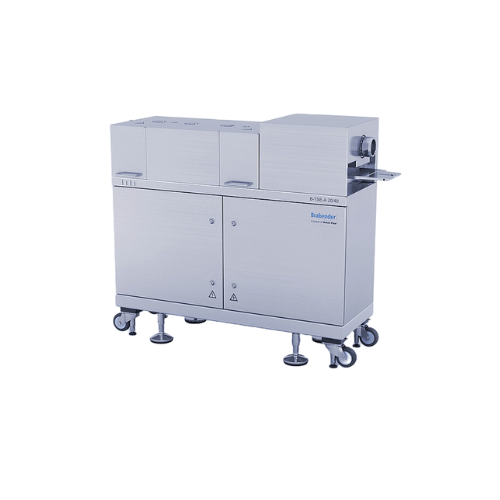
Lab-scale twin screw extruder
Optimize your material testing and production efficiency with our versatile twin screw extrude...
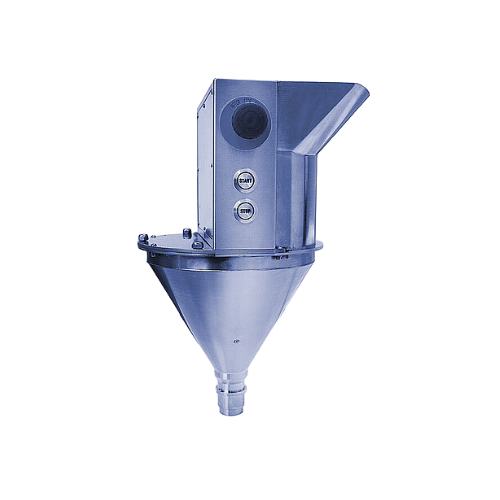
Vertical forced feeder for extruders
Enhance your extrusion process with a vertical forced feeder designed for precise dosi...
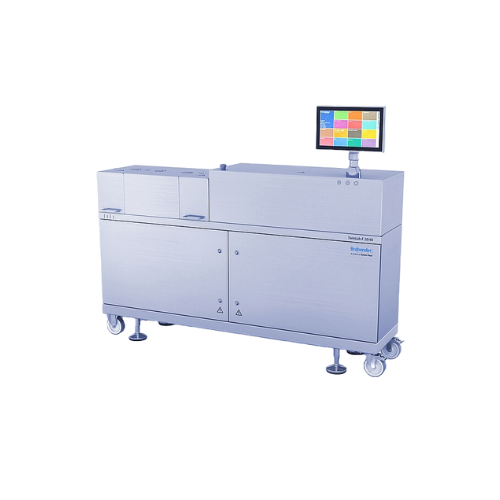
Small twin screw extruder
Optimize your lab and pilot production with a versatile twin screw extruder, designed for precise ...
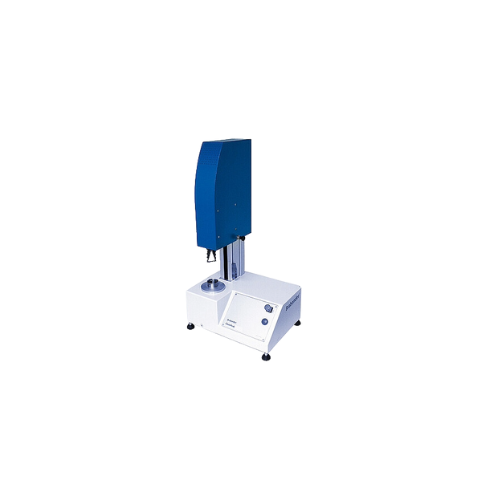
Gluten quality testing solution
Ensure optimal flour quality by rapidly assessing gluten properties, allowing you to refine ...
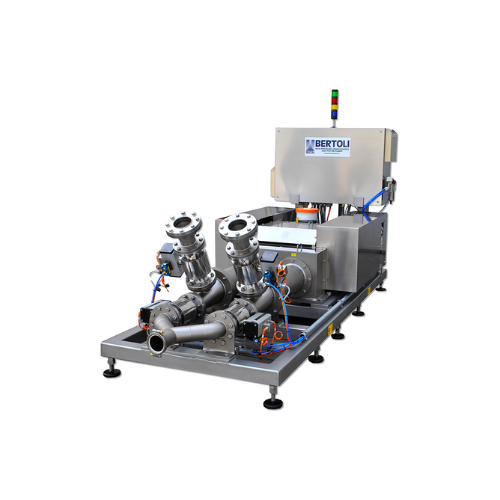
Industrial homogenizer for food and beverage applications
For manufacturers seeking consistent quality, this homogenizer...
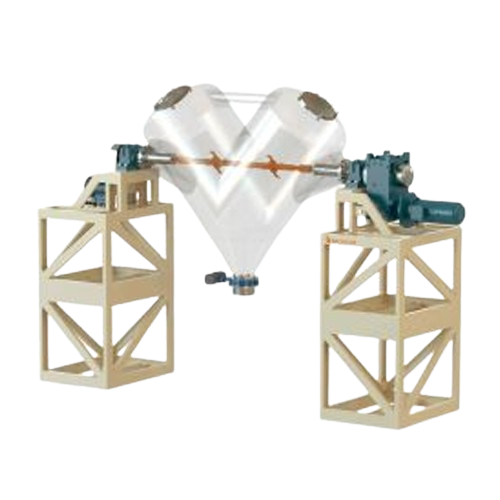
V shape mixer for solids and powders
Ideal for preserving the delicate structures of fragile materials, this mixer ensures ...
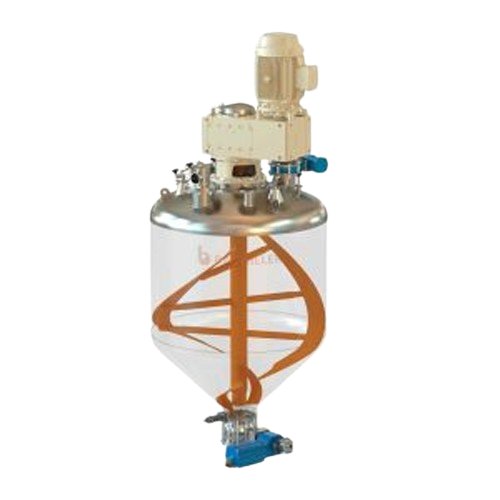
Vertical ribbon mixer for solids and powders
Achieve rapid, uniform mixing of powders and solids while preserving particle...
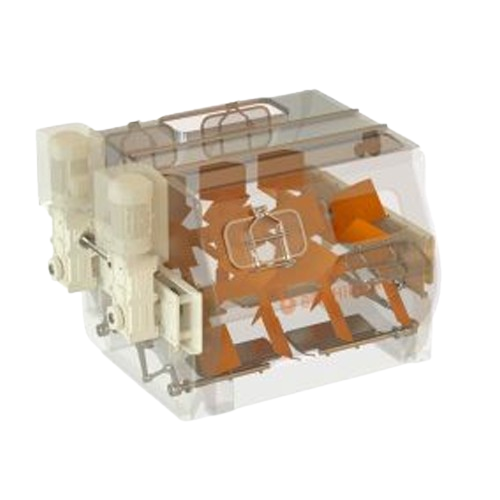
Double shaft paddle mixer for solids and powders
Achieve unparalleled mixing precision for fragile and diverse materials w...
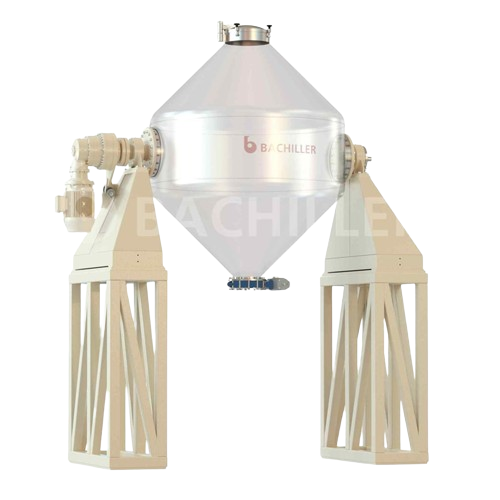
Double cone mixer for powders and solids
Ensure gentle mixing of fragile powders and solids with a low-speed, non-forced bl...
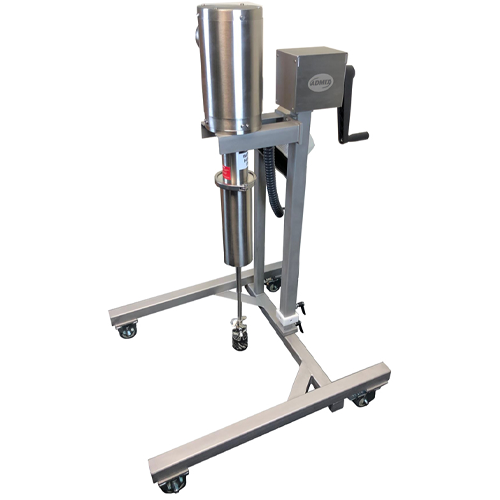
Pilot scale mixers for product development and small production runs
Optimize your mixing processes with precision cont...
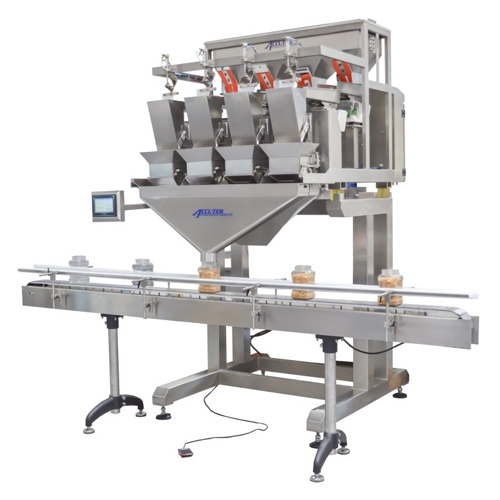
Automatic granular product weighing system
Effortlessly achieve precise fills for dry granular products and powders while ...
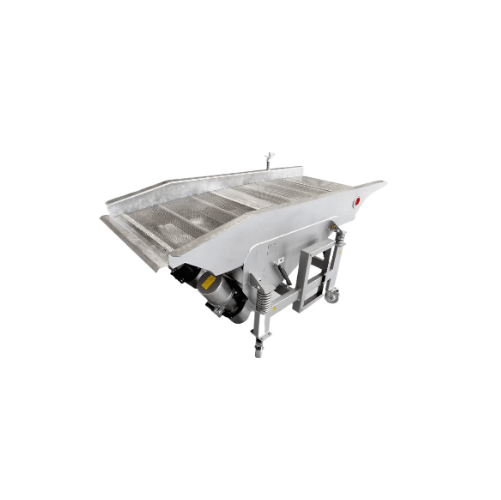
Food product sifter
Ensure precise separation with vibratory sifters designed for continuous operation, delivering gentle han...
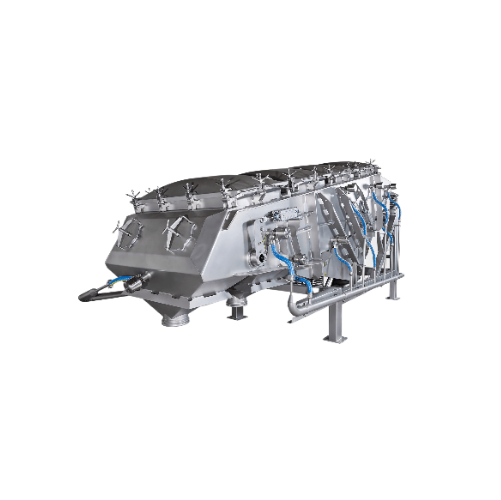
Industrial powder sifter with sanitary compliance
Optimize your powder processing with this versatile sifter, ensuring pr...
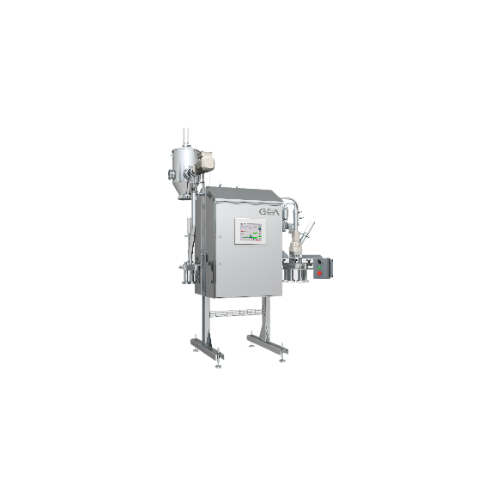
Vacuum powder sampler for particle size distribution control
Ensure precise quality control with a vacuum powder sampler...
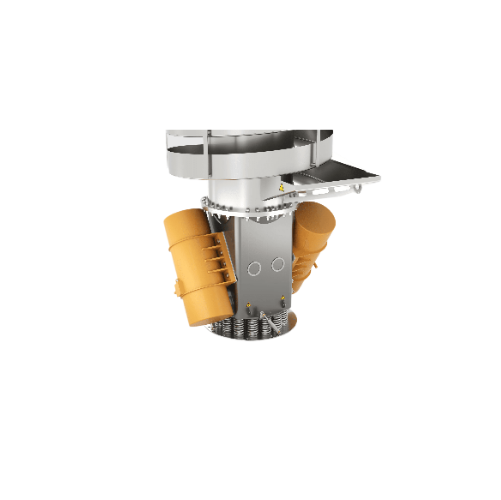
Vibratory spiral elevator for vertical transport
Achieve efficient vertical transport with precise temperature control, su...
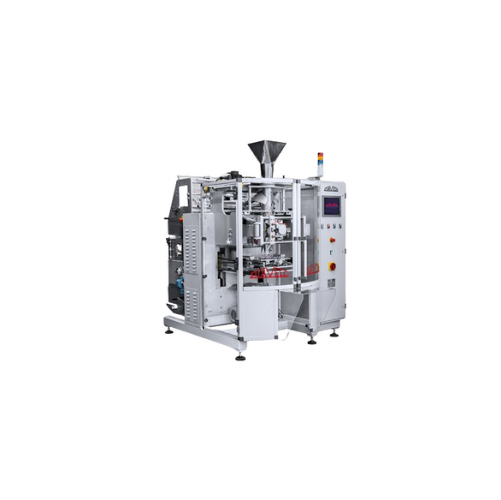
Continuous motion packaging for short-cut pasta
Optimize your packing line with a high-speed solution designed for efficie...
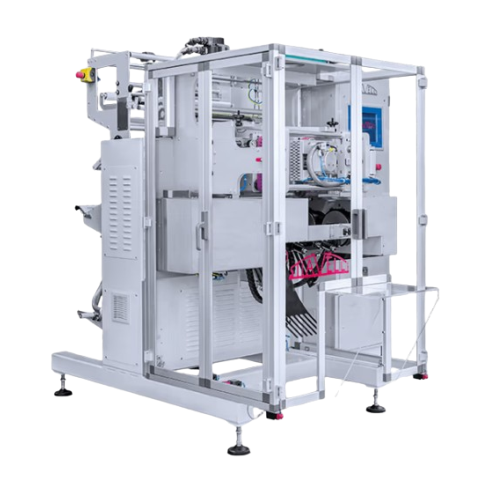
Vertical packaging system for short-cut pasta and dry granular food
Streamline your packaging operations with a high-sp...
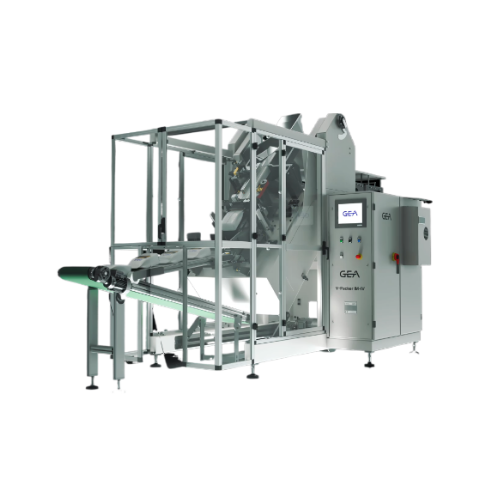
Vertical packaging system for fragile food products
Handle delicate food items like pasta nests and bakery products with ...
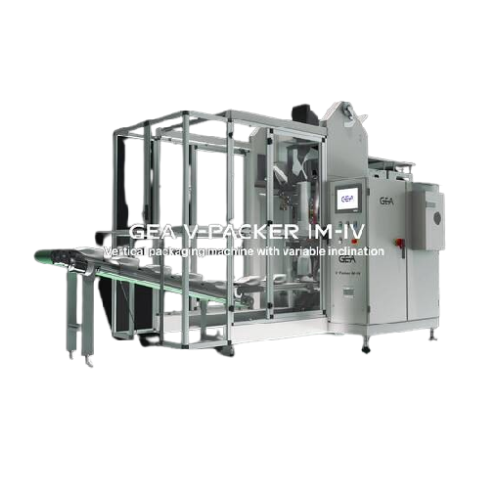
Intermittent motion packaging system for dry granular food
Achieve precision packaging for dry foods with an advanced sy...
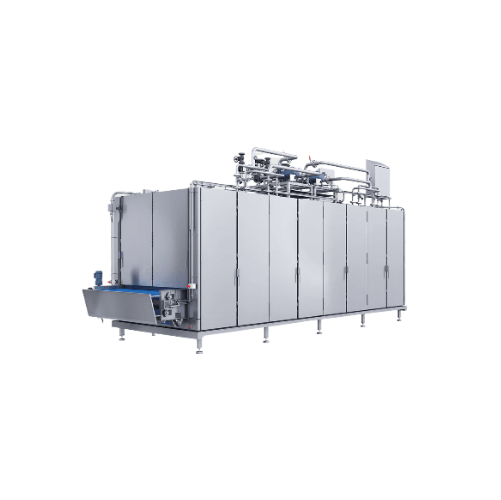
Industrial cooling system for packaging temperature control
Achieve precise temperature control and maximize energy effi...
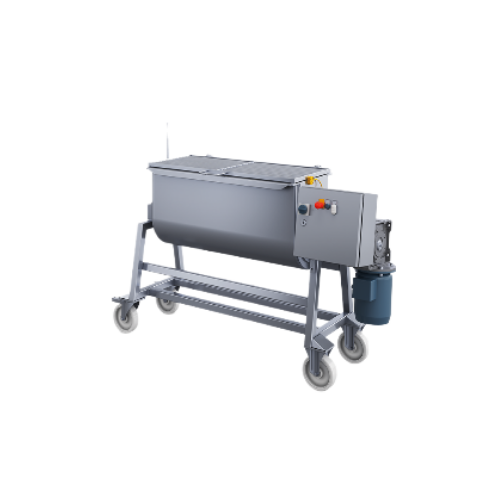
Batch standing mixer for dough preparation
Enhance your mixing precision with a batch standing mixer that optimizes paddle...
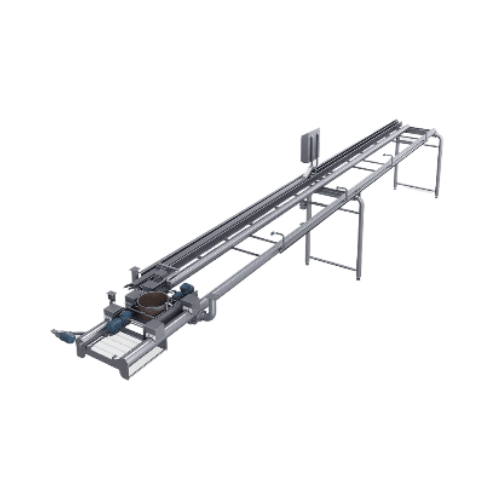
Dough distribution system for multiple mixing points
Ensure precise dough allocation across multiple production stages wi...
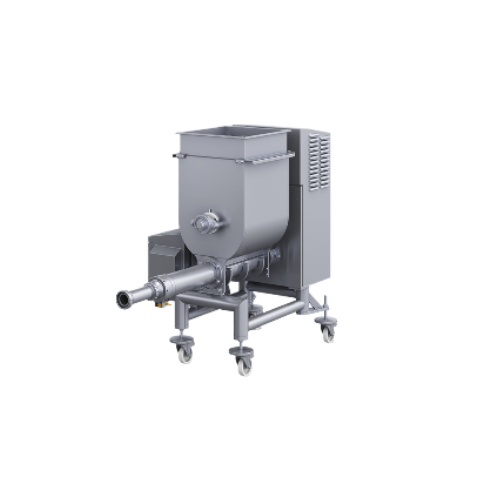
Industrial screw pump for dosing hard fillings
Enhance precision and efficiency in dosing hard fillings with a robust scre...
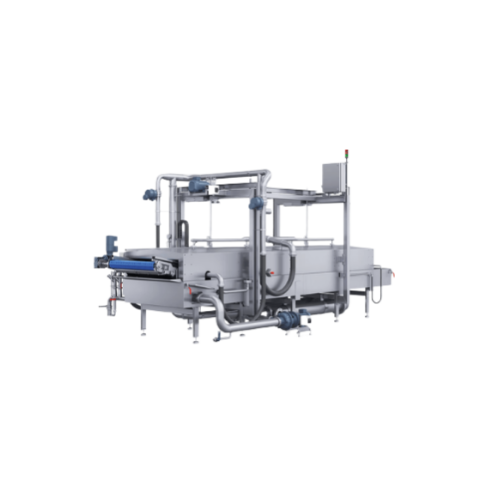
Industrial water cooling system for food products
Efficiently cool and convey food products with a system designed for un...
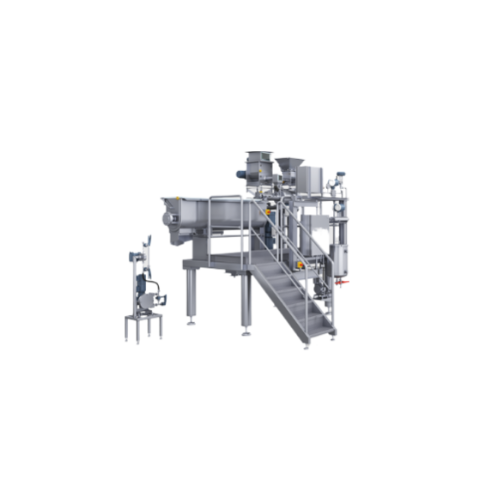
Automatic continuous mixer for dough preparation
Streamline your production line with a mixer that ensures precise dosing ...
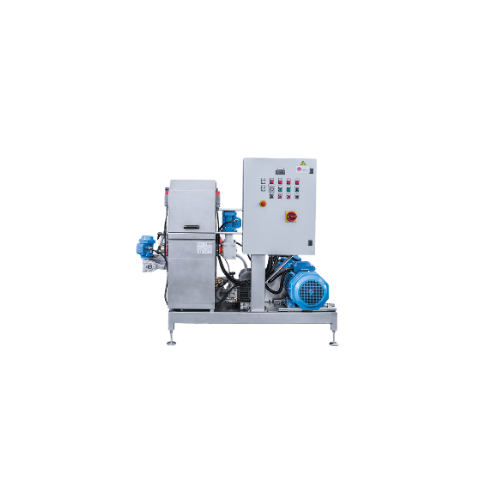
Round die washer for pasta and snack production
Ensure impeccable hygiene with a specialized washer that streamlines die m...
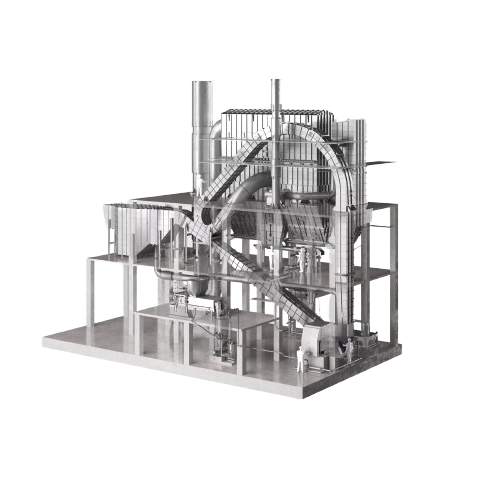
Industrial ring dryer for efficient particle processing
Control particle size and drying efficiency with precise recircul...
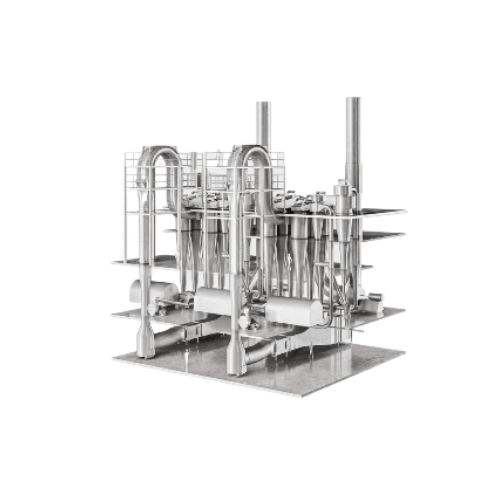
Flash dryer for industrial moisture removal
Optimize your production with rapid moisture removal, efficiently transforming...
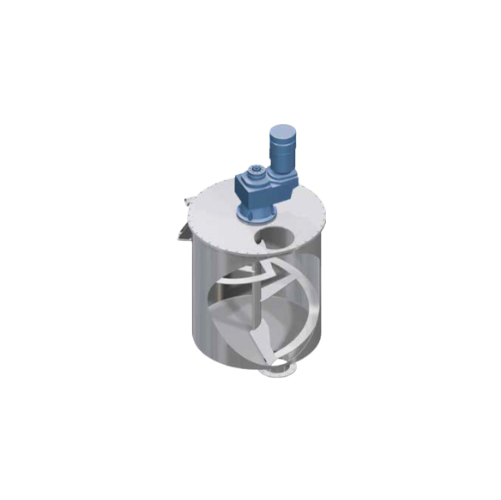
Screw belt mixer for dry materials
Achieve uniform mixing of bulk dry materials with variable speed control, ensuring preci...
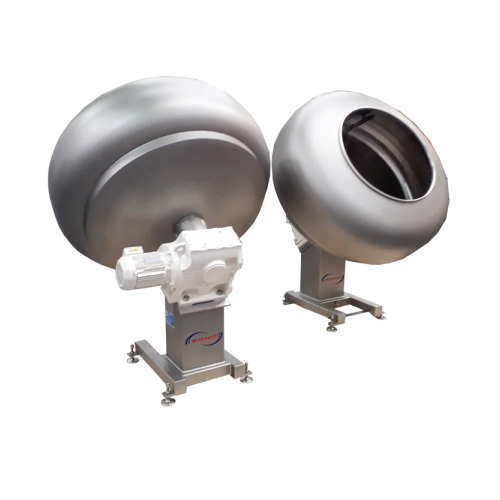
Industrial coating pans for sweets and confectionery
Ensure even and consistent coatings with high-capacity pans designed...
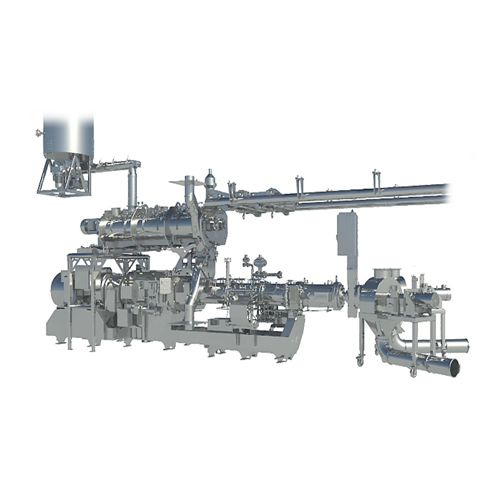
Extruder for aquatic feed production
Efficiently produce a wide range of aquatic and pet feed with precise control over pel...
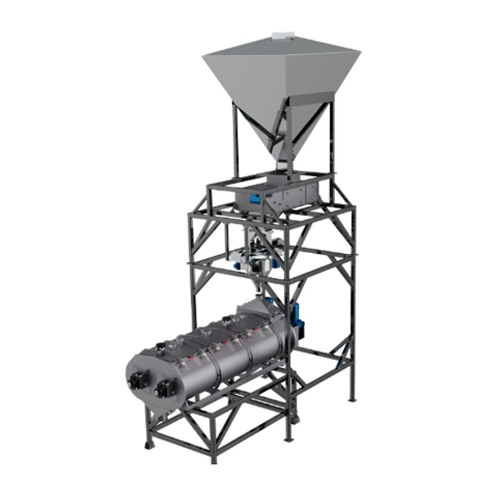
Coating and enrobing system for pet foods and treats
Achieve precise coating and flavoring of various food and feed produ...
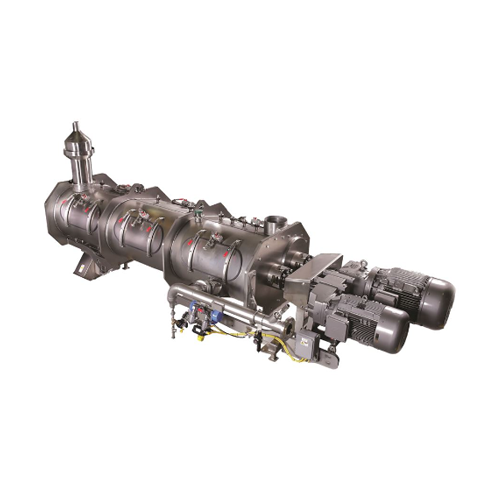
High intensity preconditioner for textured vegetable proteins
Optimizing your production with precise moisture control a...
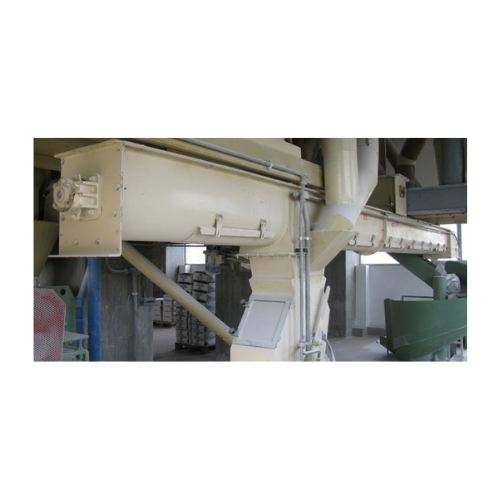
Trough screw conveyor for flour mills
Optimize your flour processing with efficient material handling, precisely designed f...
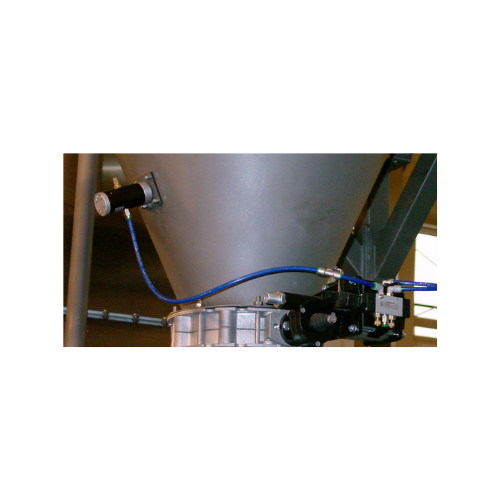
Pneumatic linear vibrators for bulk material flow
Prevent bridging and rat-holing in your production process with silent,...
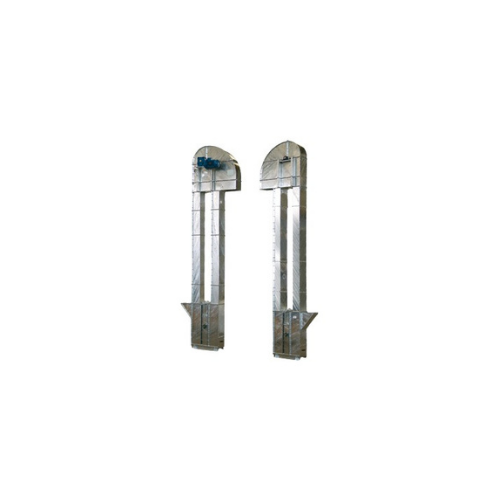
High capacity vertical conveying for grains and cereals
Ensure efficient vertical transport of bulk materials like cereal...
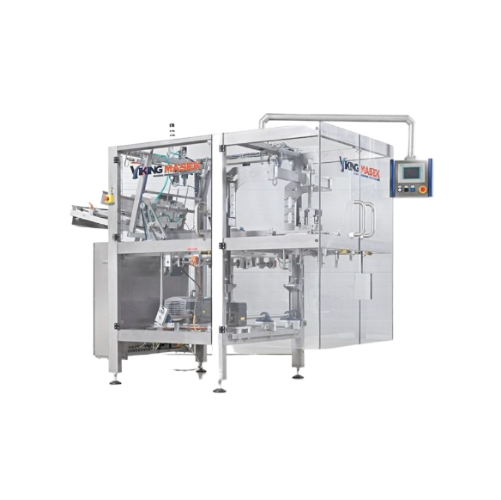
Top load cartoner for various carton shapes
Optimize your production line with a versatile cartoning solution, perfect for...
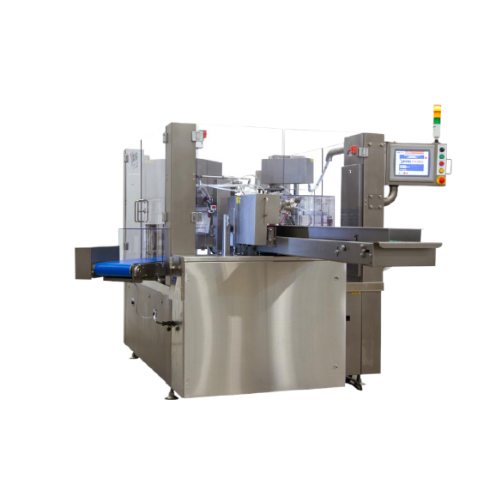
Automatic rotary premade pouch filler for various industries
Streamline your pouch packaging process with precision fill...
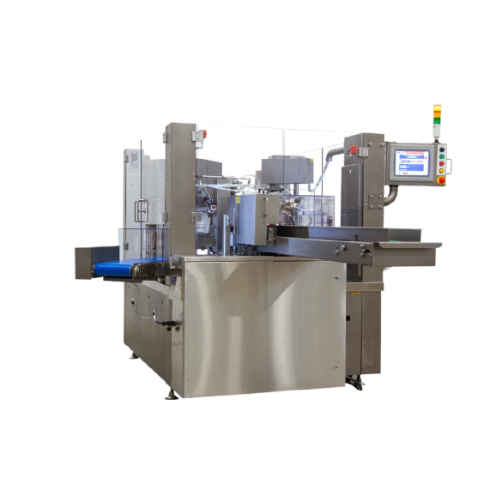
Automatic rotary premade pouch filler for food products
Enhance your packaging line with a high-speed solution designed t...
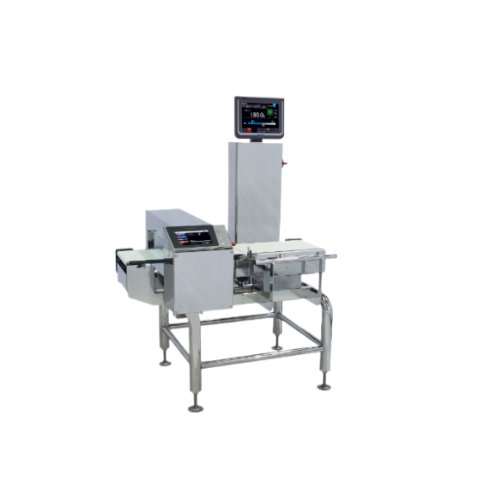
Product inspection systems for contamination control
Ensure product safety and compliance with precision inspection techn...
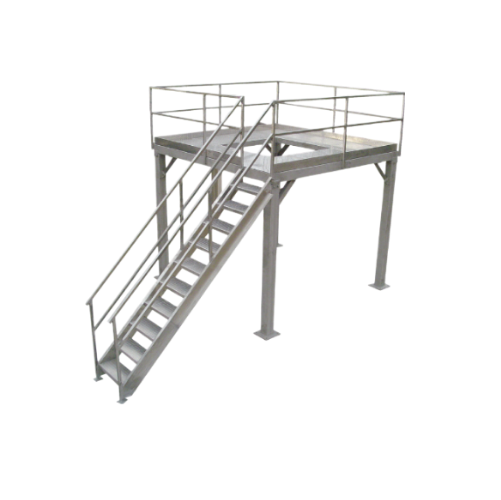
Support structures for packaging lines
Enhance safety and efficiency in your production line with robust support structures...
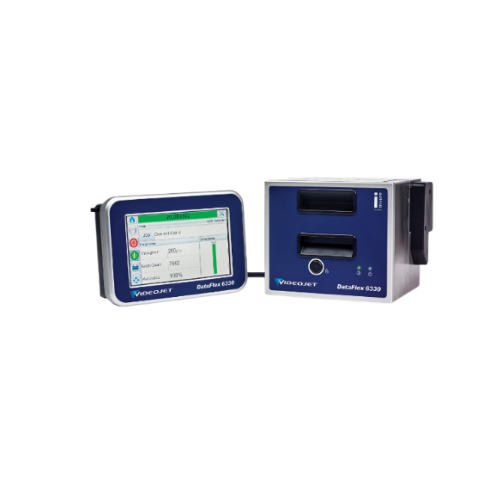
Industrial printers and labelers for packaging
Ensure precise package identification and traceability with robust printing...
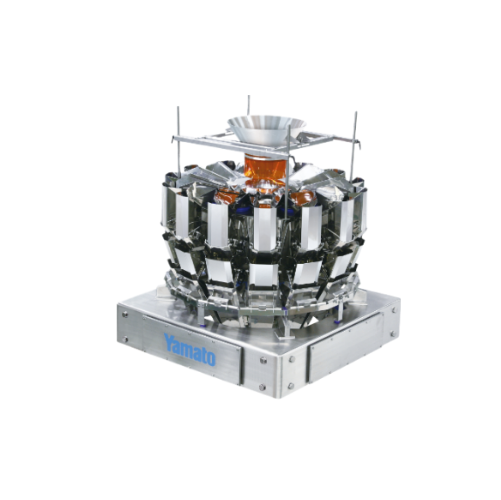
Industrial product fillers for precise packaging
Achieve consistent package weights and volumes with precision filling sol...
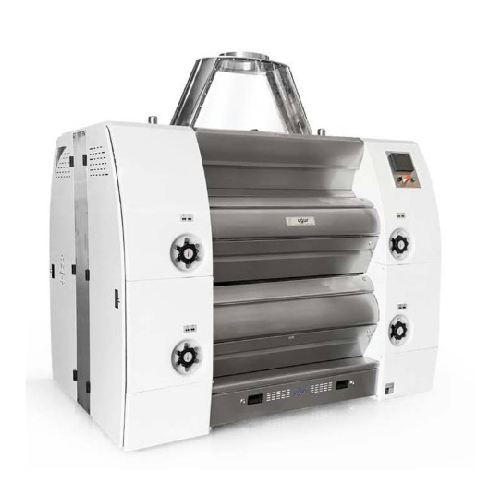
Double deck roller mill for grain milling
Achieve superior milling results with increased efficiency and hygiene in proces...
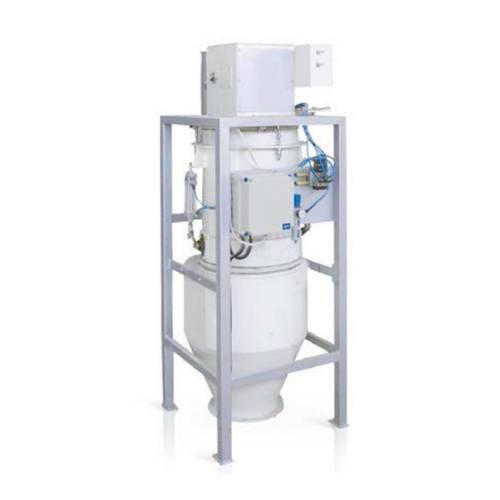
Industrial extraction scale for accurate material weighing
Ensure precise ingredient proportions in your milling operati...
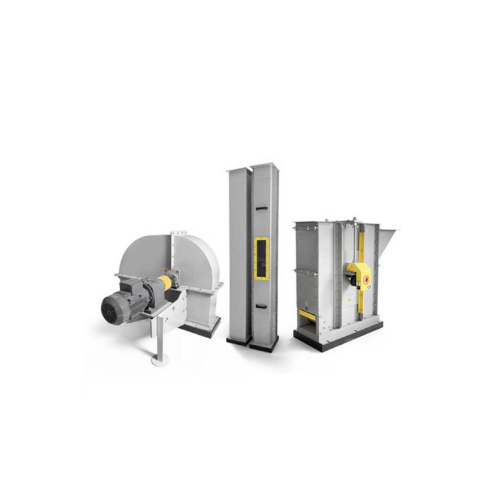
Bucket elevator for grain and powder products
Efficiently transport bulk materials like grain and powder vertically with p...
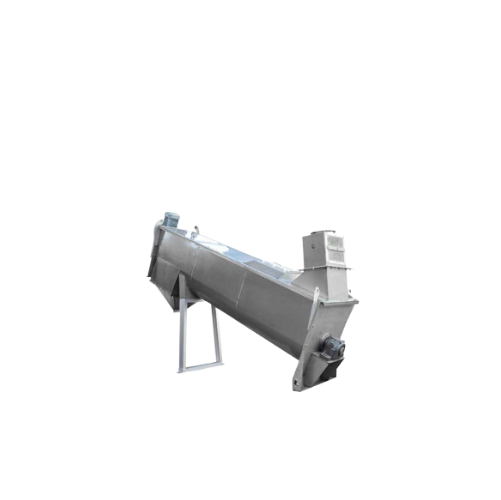
Inclined intensive dampener for grain processing
Ensure consistent moisture levels for optimal grain processing and enhanc...
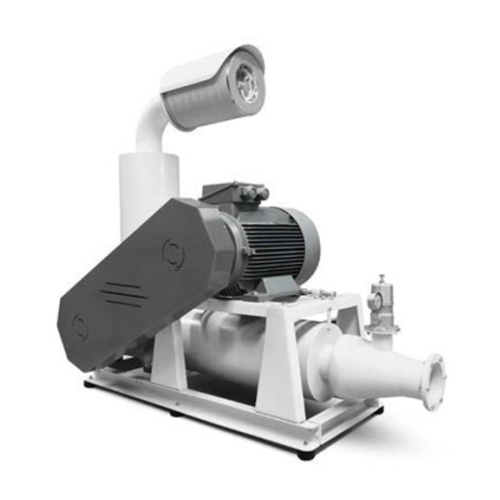
Blower for vertical and horizontal grain transport
Efficiently transport grains, legumes, and flour both vertically and h...
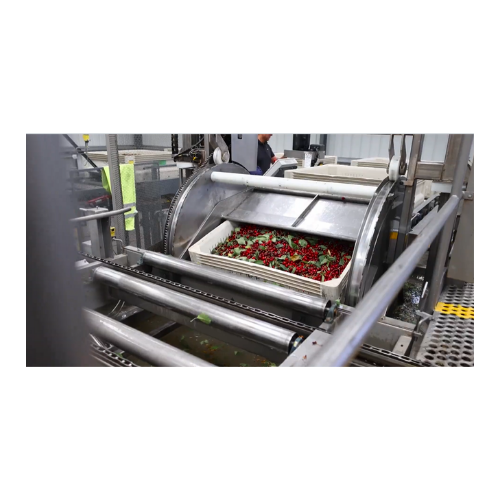
Cherry sorting system with deep learning technology
Boost your fruit processing efficiency by utilizing advanced deep lea...
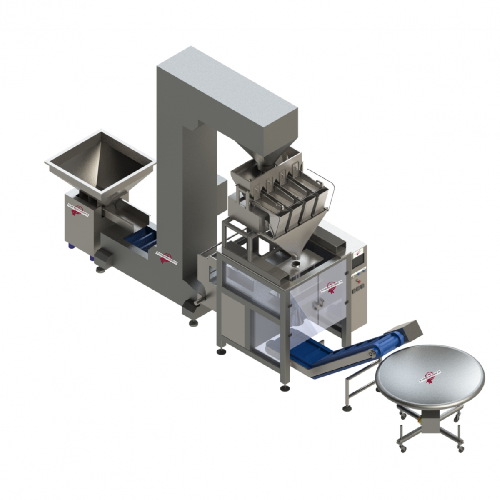
Modular linear packing system for granular products
Streamline your packing operations with a versatile system that integ...
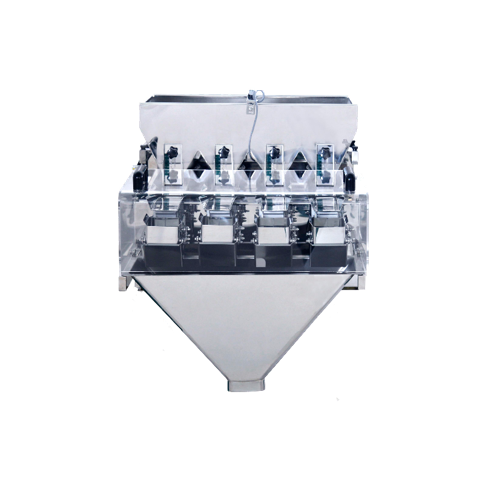
Linear weigher for dry free flowing powder
Optimize your packaging line with precise weighing for free-flowing granular pr...
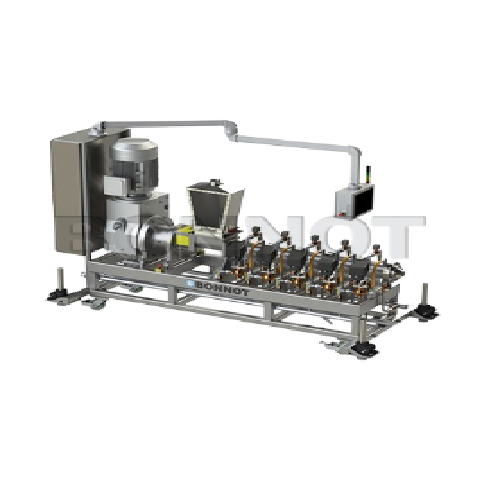
Cooking extruders for continuous food processing
Optimize your extrusion processes with cooking extruders designed for con...
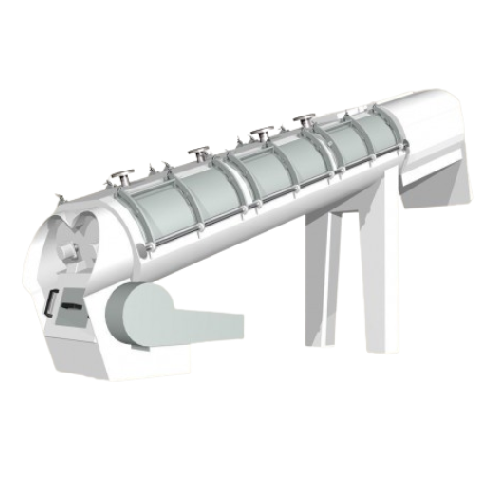
Thermal conditioning for improved meal flow and starch digestibility
Ensure optimal meal flow and starch digestibility ...
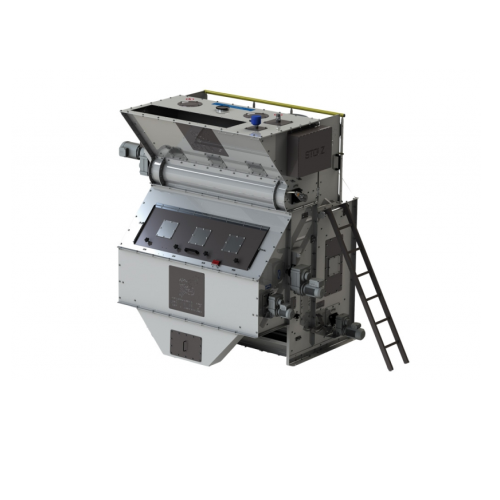
High-capacity pre-cleaner drum for grain silo storage
Optimize your pre-cleaning process with a high-capacity drum that e...
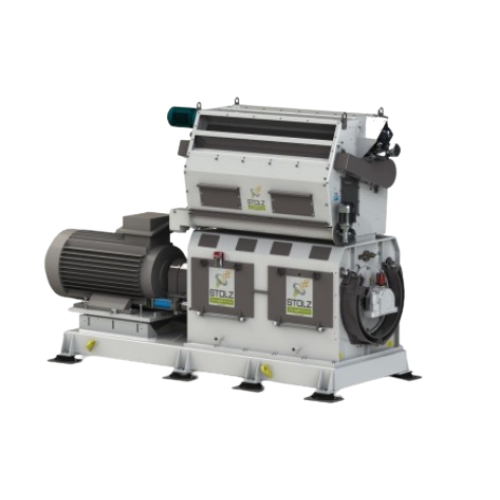
Industrial hammermill for fine grinding applications
Elevate your milling efficiency with hammermills designed for precis...
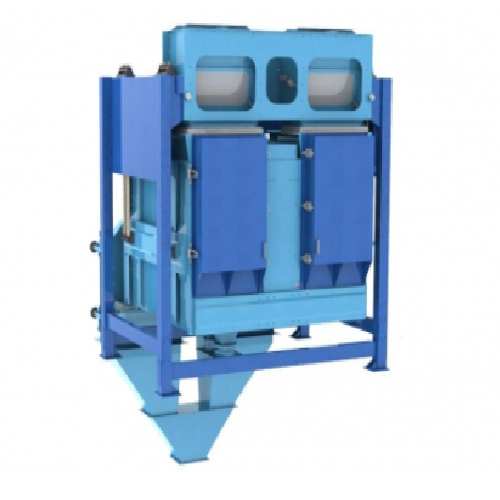
Agricultural cleaner-separator for grain processing
Optimize your grain processing with a versatile cleaner-separator eng...
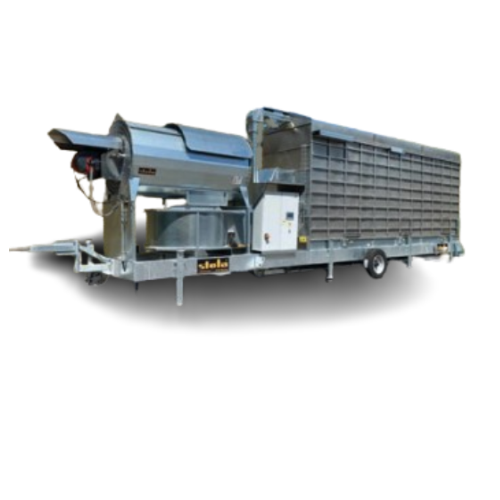
Mobile circulating dryer for agricultural products
Optimize your drying processes with a mobile circulating dryer, design...
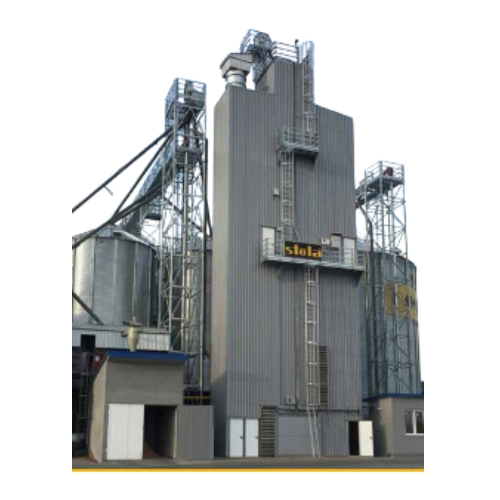
Grain dryer with air circulation system
Enhance efficiency and product quality with our versatile grain dryer, designed to ...
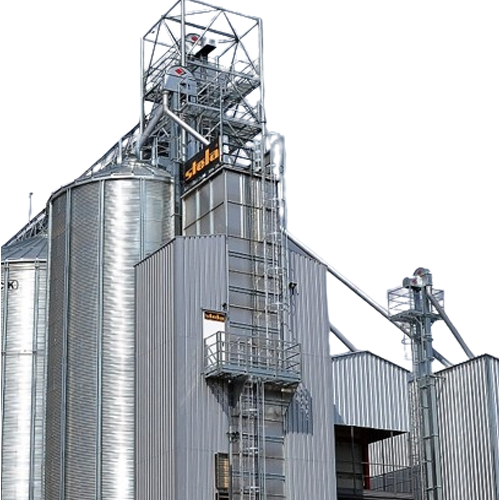
Stationary grain dryer with biturbo system
Optimize your drying processes with a system that efficiently manages air flow ...
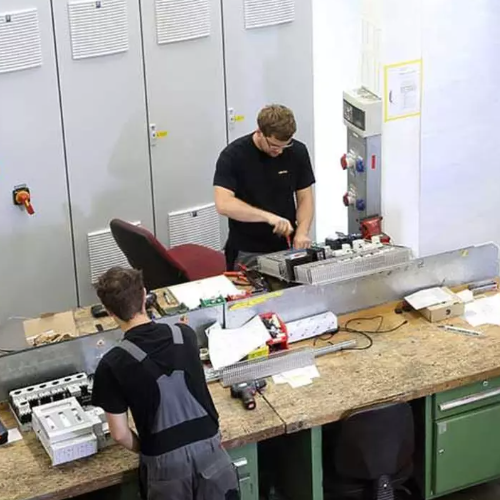
Low-emission belt drying systems for timber industry
Optimize moisture control and energy efficiency in drying processes ...
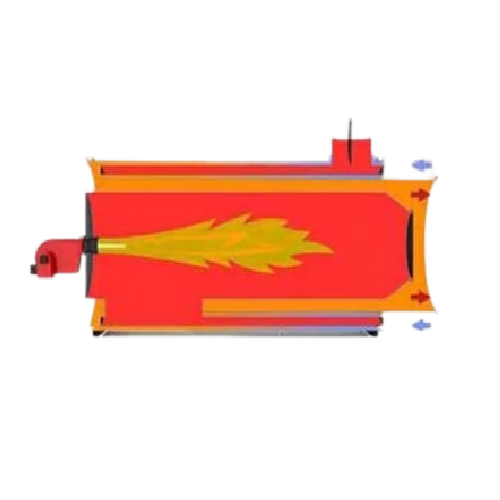
Industrial air heater for agriculture and industry
Optimize energy efficiency and maintain high air quality in your produ...
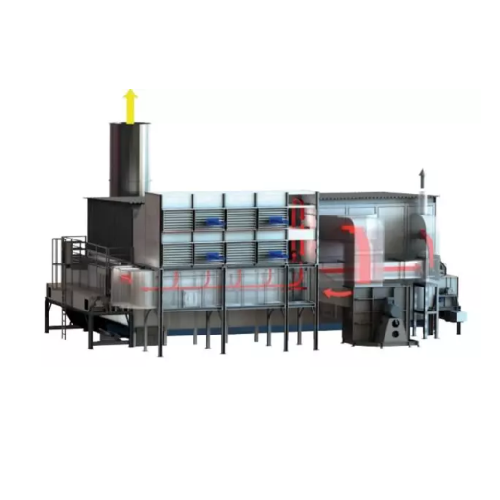
Belt dryer for timber industry
Optimize moisture removal and ensure consistent drying in your production line with advanced ...
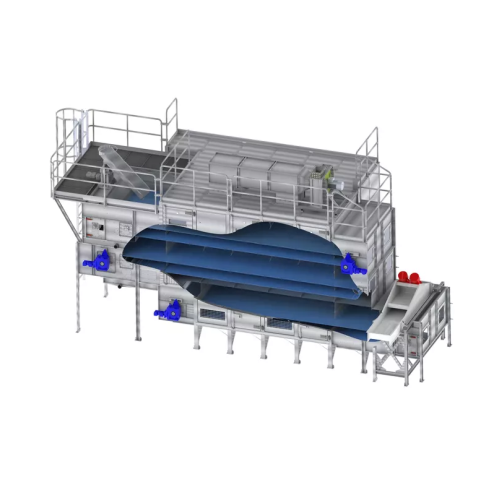
Layer dryer for food and pet food applications
Optimize drying efficiency with multi-layer technology that minimizes space...
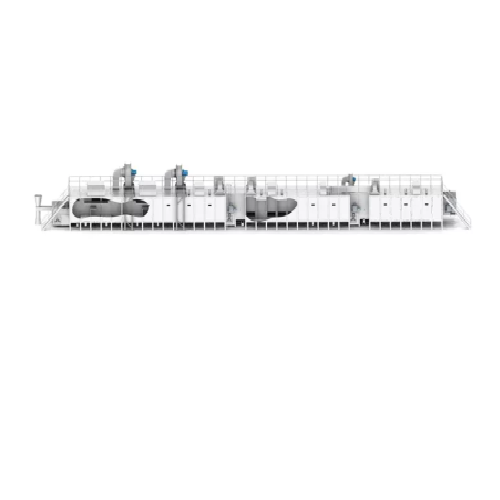
Belt dryer for food and pet food products
Optimize drying processes with customizable belt dryers, engineered to handle ro...
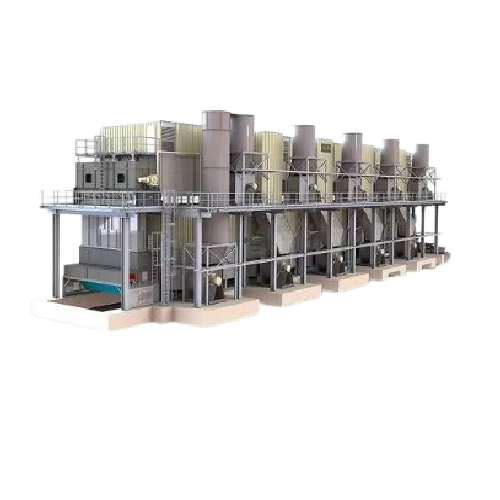
Belt dryer for sawdust
Optimize your drying process with advanced technology engineered for precise moisture reduction in div...
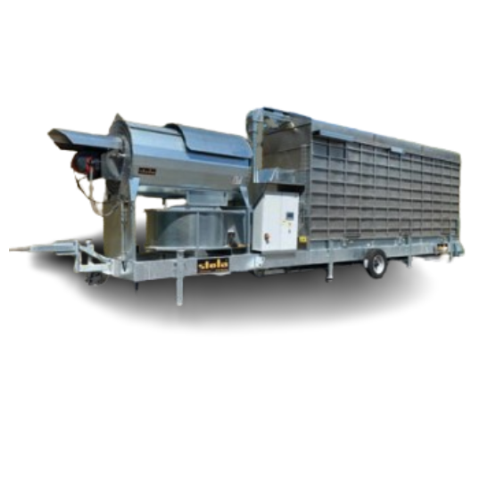
Hybrid dryer for agriculture and industrial applications
Achieve efficient moisture reduction in varied materials, from f...
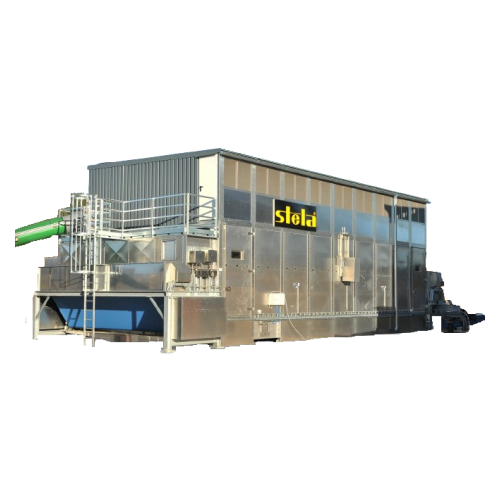
Mobile belt dryer for sawdust and biomass
Efficiently reduce moisture in a variety of materials, from sawdust to cereal sn...
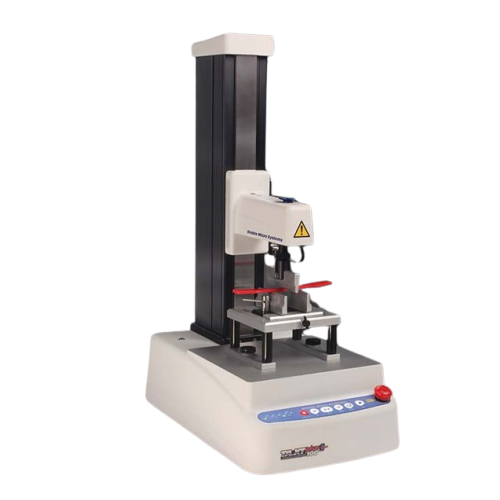
High-force texture analyser for precise measurement
Achieve unparalleled precision in texture analysis for high-force app...
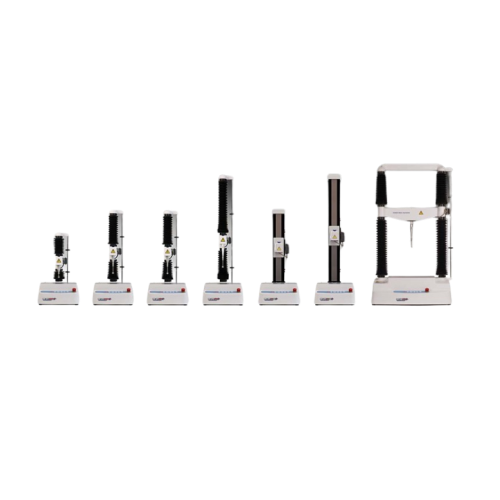
Portable texture analysis for low force applications
Easily perform precision texture measurements on low-force applicati...
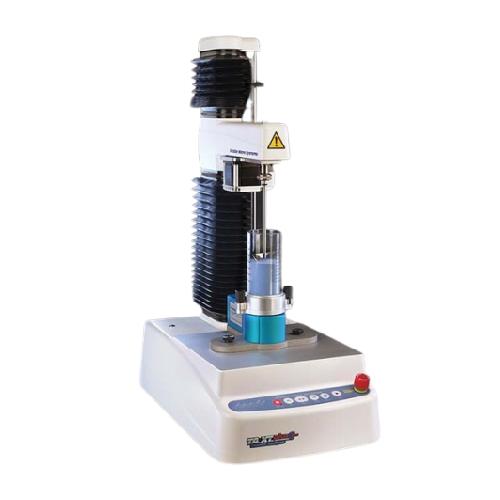
Powder flow measurement system
Achieve precise control over powder consistency and prevent process disruptions by assessing ...
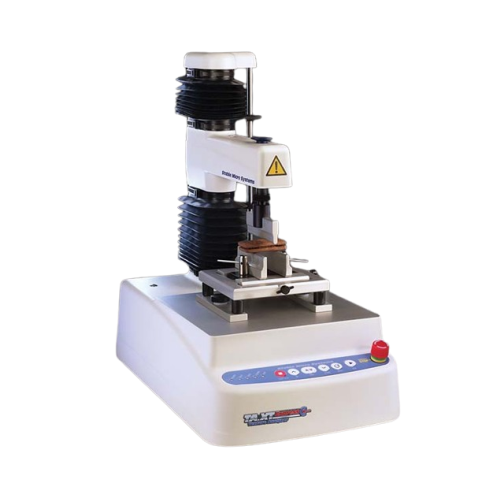
Entry-level texture analysis system for Qc applications
Perfect for quality control labs, this portable system streamline...
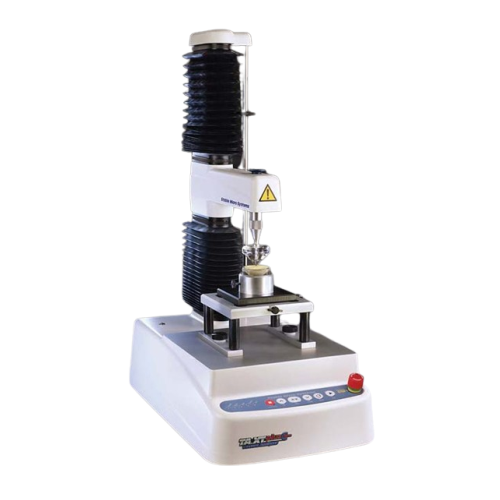
Texture analyser for food and cosmetics testing
Ensuring consistent product quality across diverse food and cosmetic appli...
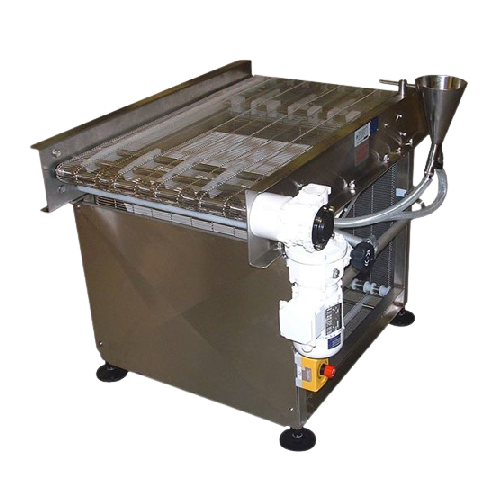
Electrostatic drum flavouring for uniform coating
Achieve precise and uniform flavor distribution on snack products with ...
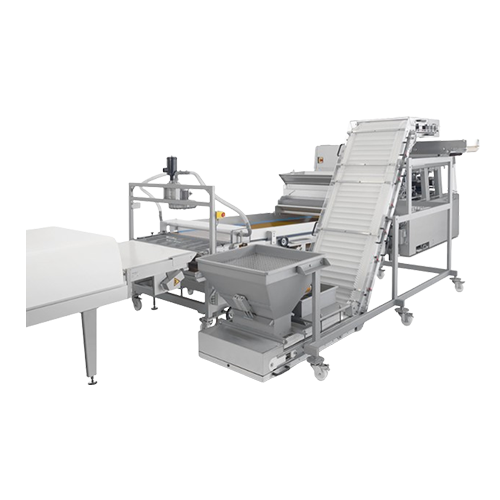
Z-conveyor for confectionery production
Ensure the gentle transport of delicate dry and granulated ingredients with a versa...
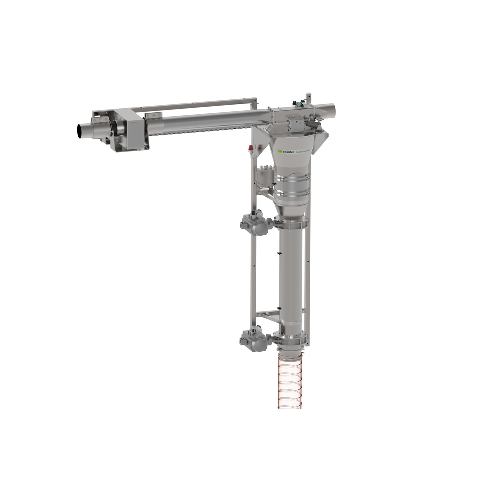
In-line metal detector for pneumatic systems
Ensure product purity and operational efficiency with a solution that effecti...
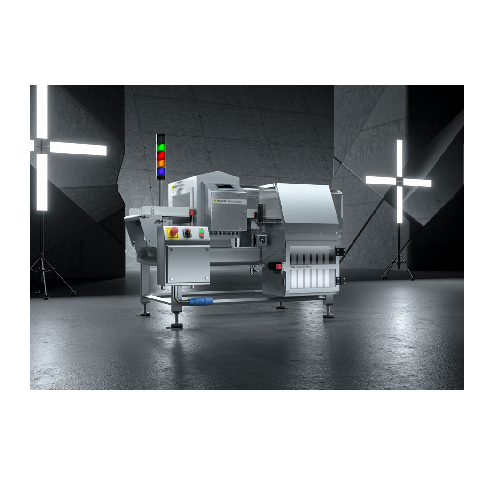
Conveyor belt metal detection system
Ensure seamless product safety with a system that detects and separates metallic conta...
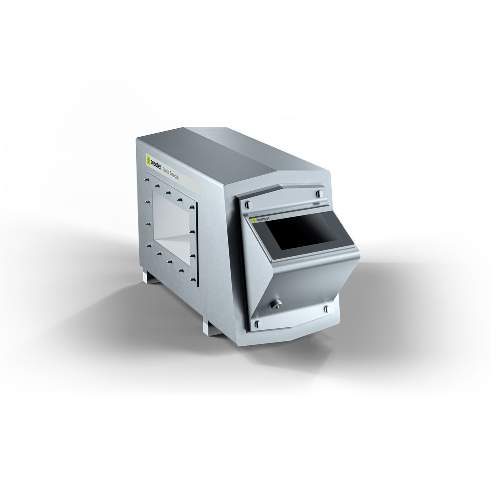
Metal detector systems for conveyor belts and chutes
Ensure the integrity of your production line by efficiently detectin...
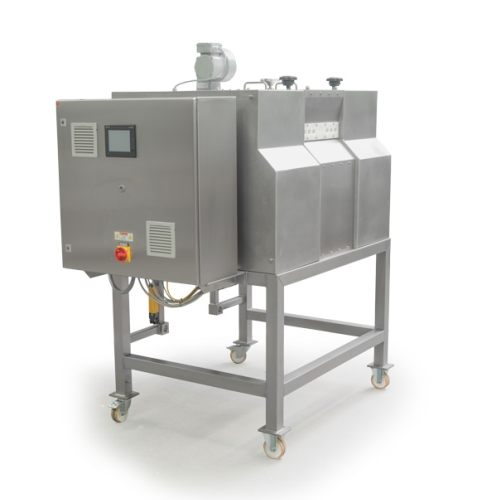
Industrial breadchips cutting solution
Achieve precise, high-speed slicing of bread-based strands into thin, uniform chips ...
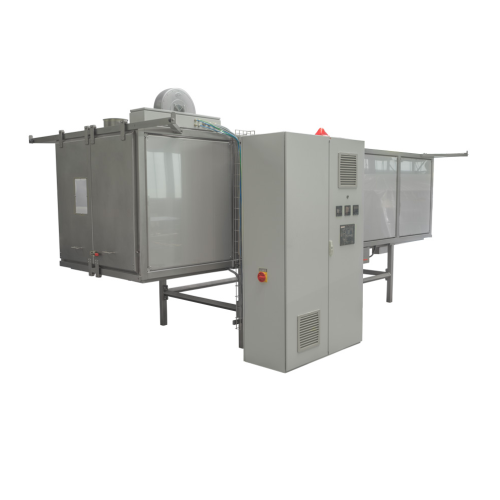
Infrared dryer for breakfast cereals
Optimize your snack production with precise moisture control, energy-efficient infrare...
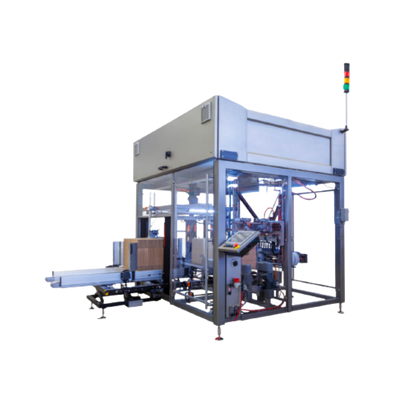
Top load Case Packer For Food Products
If you want to pack your food cartons, doy packs and pouches into regular cases, a s...
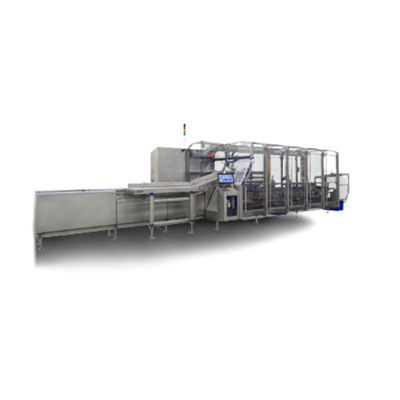
Intelligent Continuous Food Cartoner
Fully automated robotic packing solutions enable larger-scale food producers to pack a...
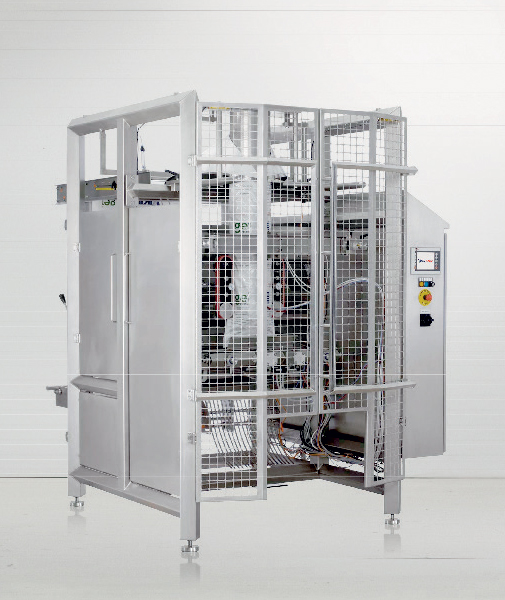
Hygienic vertical bagging machine
Hygienic bagging with a compact packing machine that can withstand the harshest wash down...
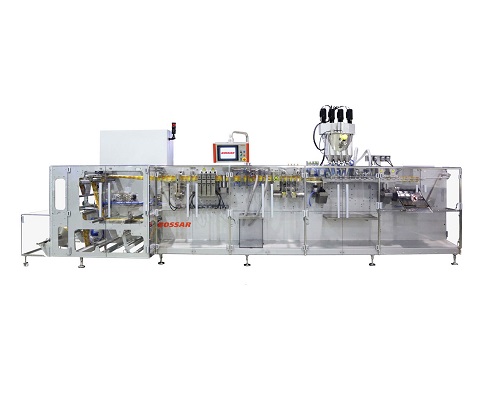
High-Speed Pouch Packaging Machine
For large scale production of powders and liquids in a wide range of industry sectors, a...
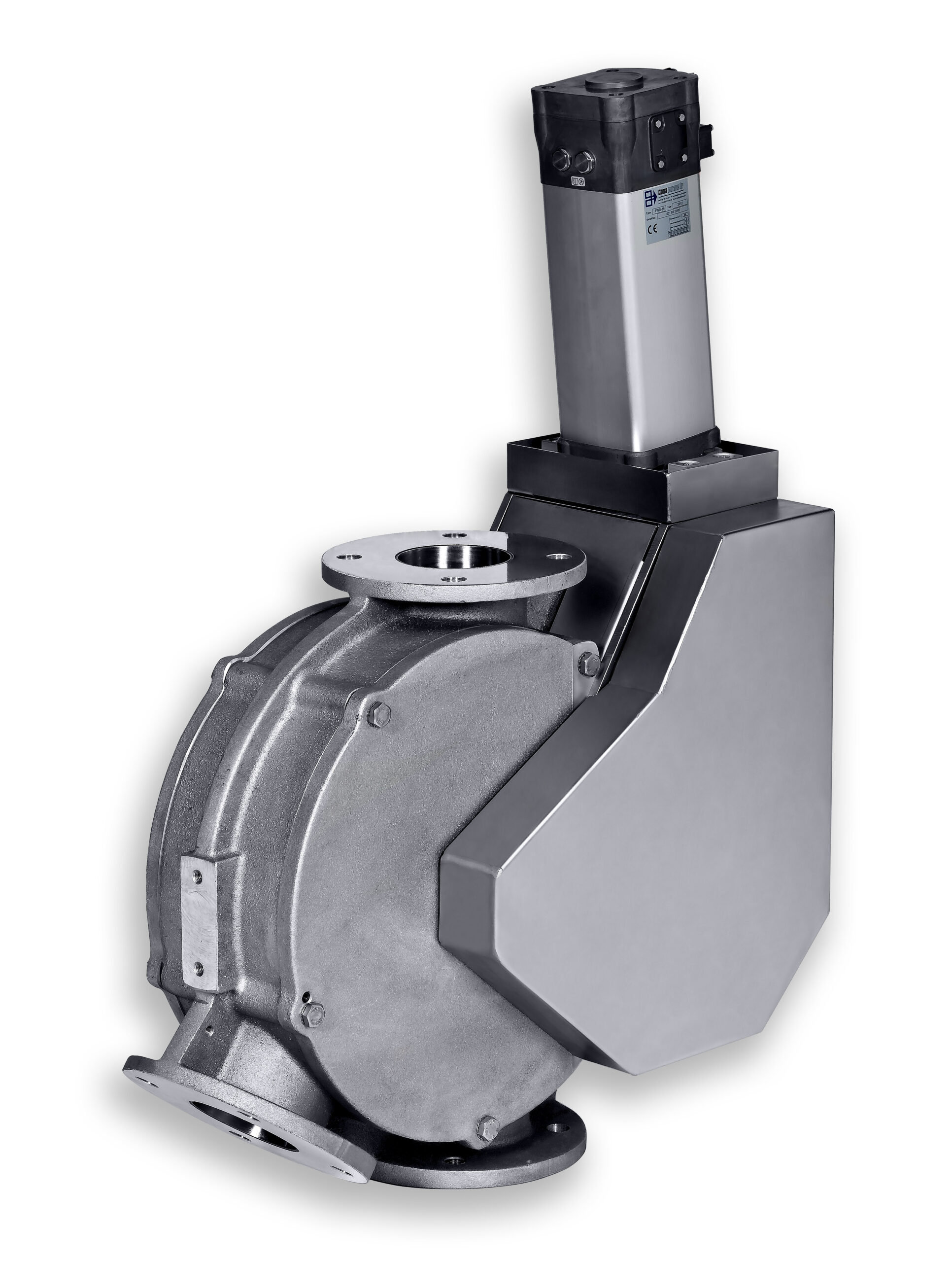
Dual channel plug diverter valve
Short switching times are often required when diverting or combining powder or granular sol...
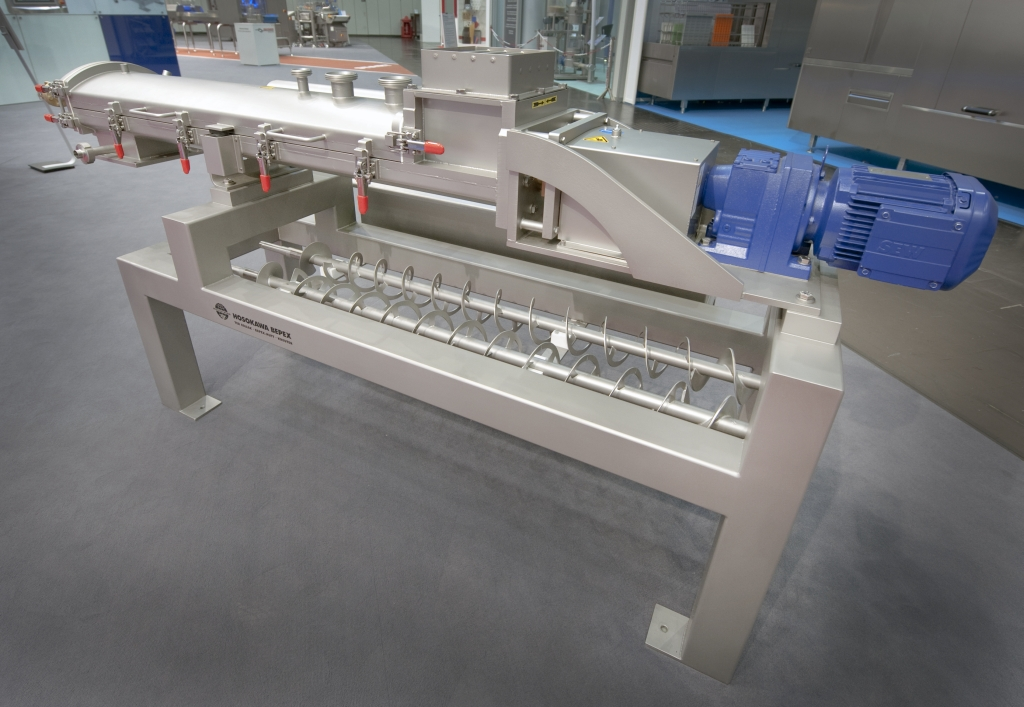
Continuous caramel mixer
Mix your recipe’s ingredients in preparation for further processing. This is a continuous mixe...
